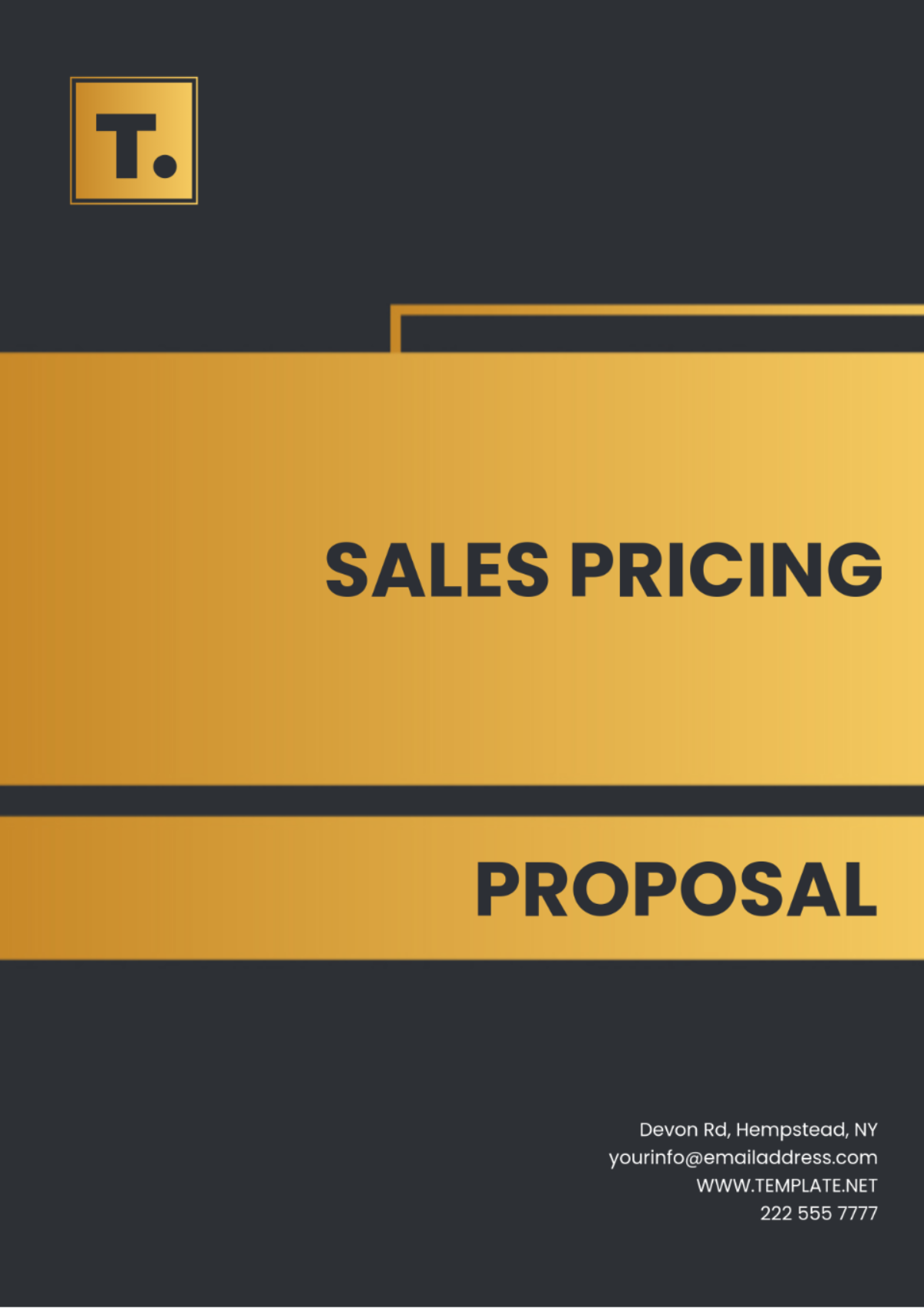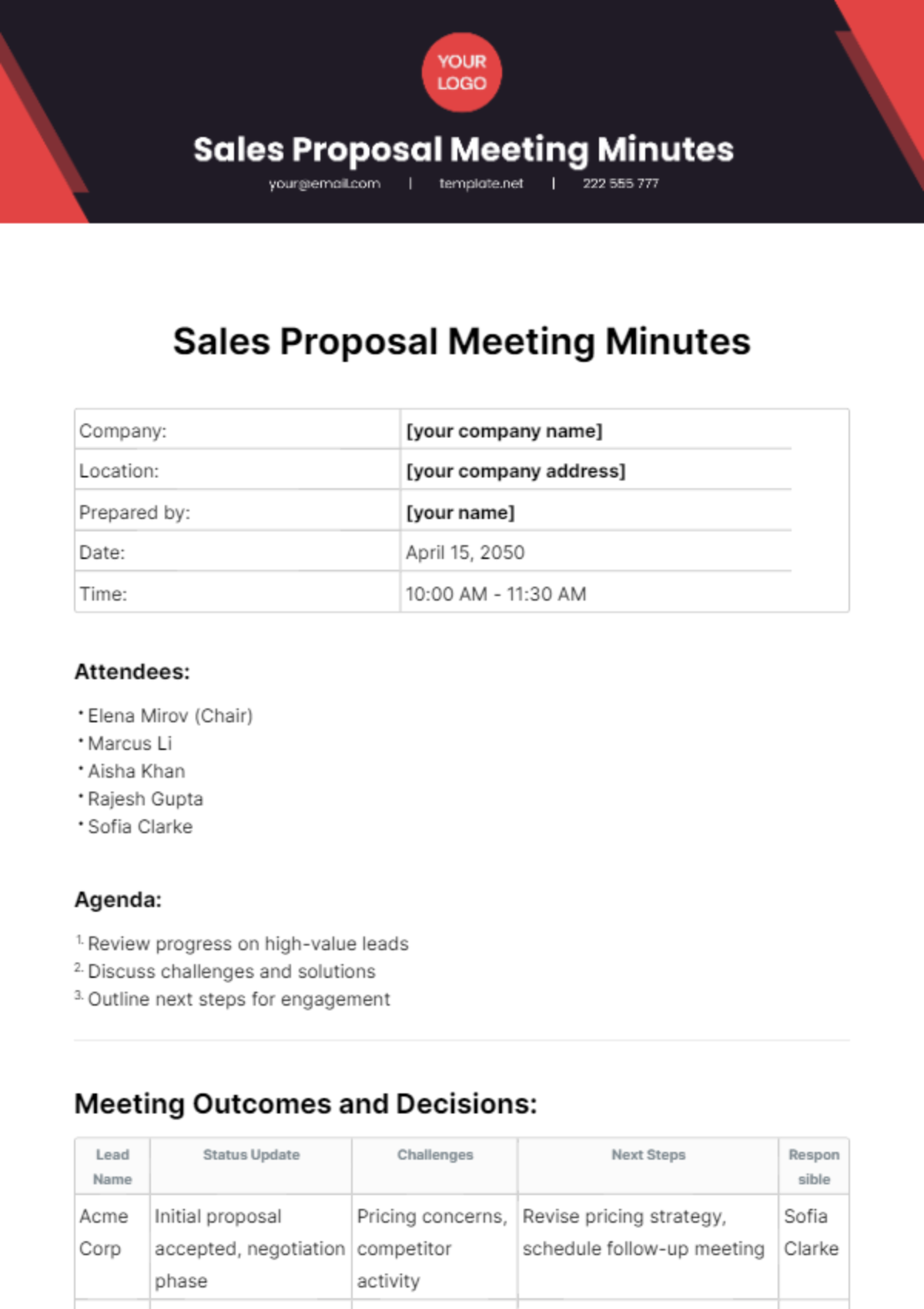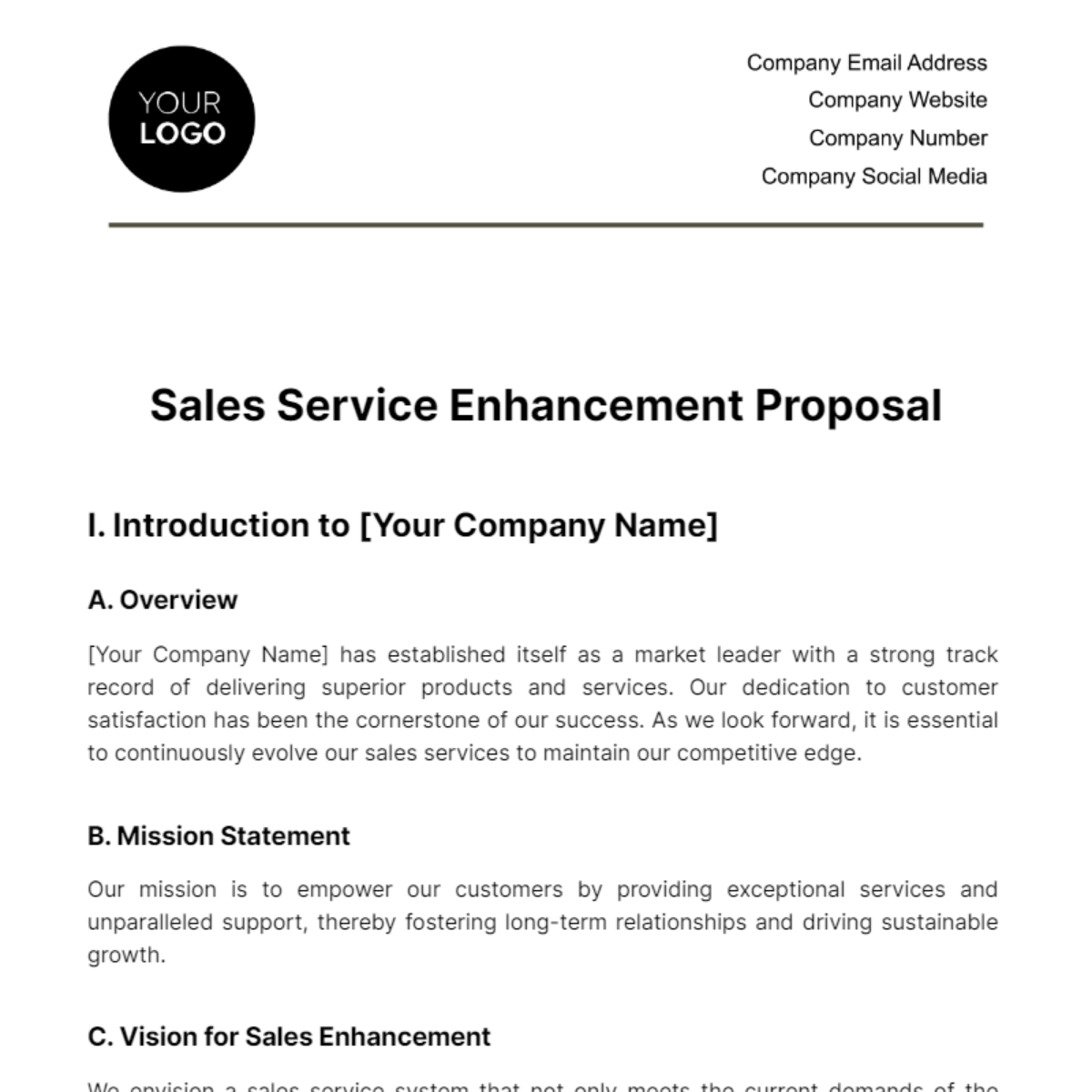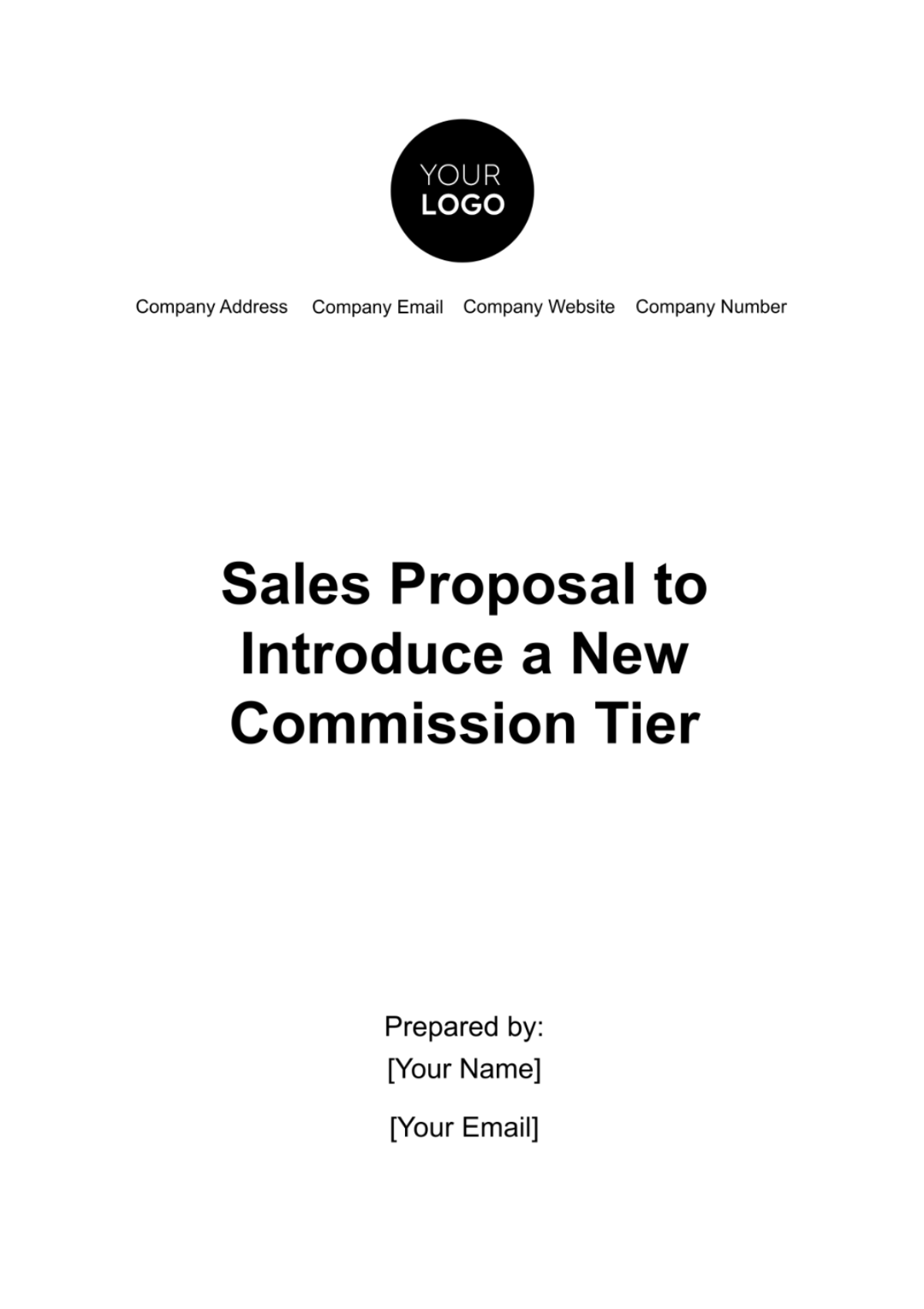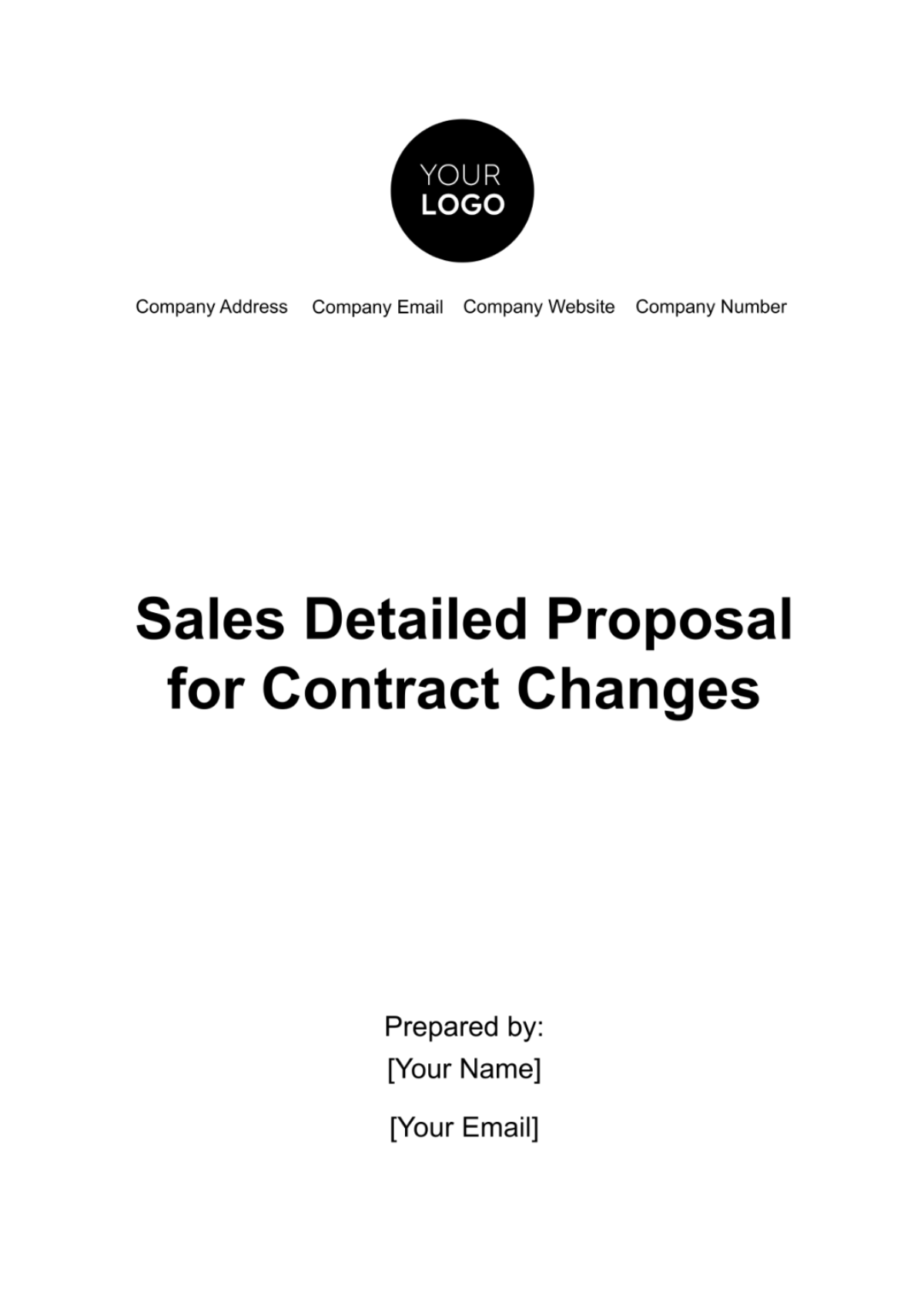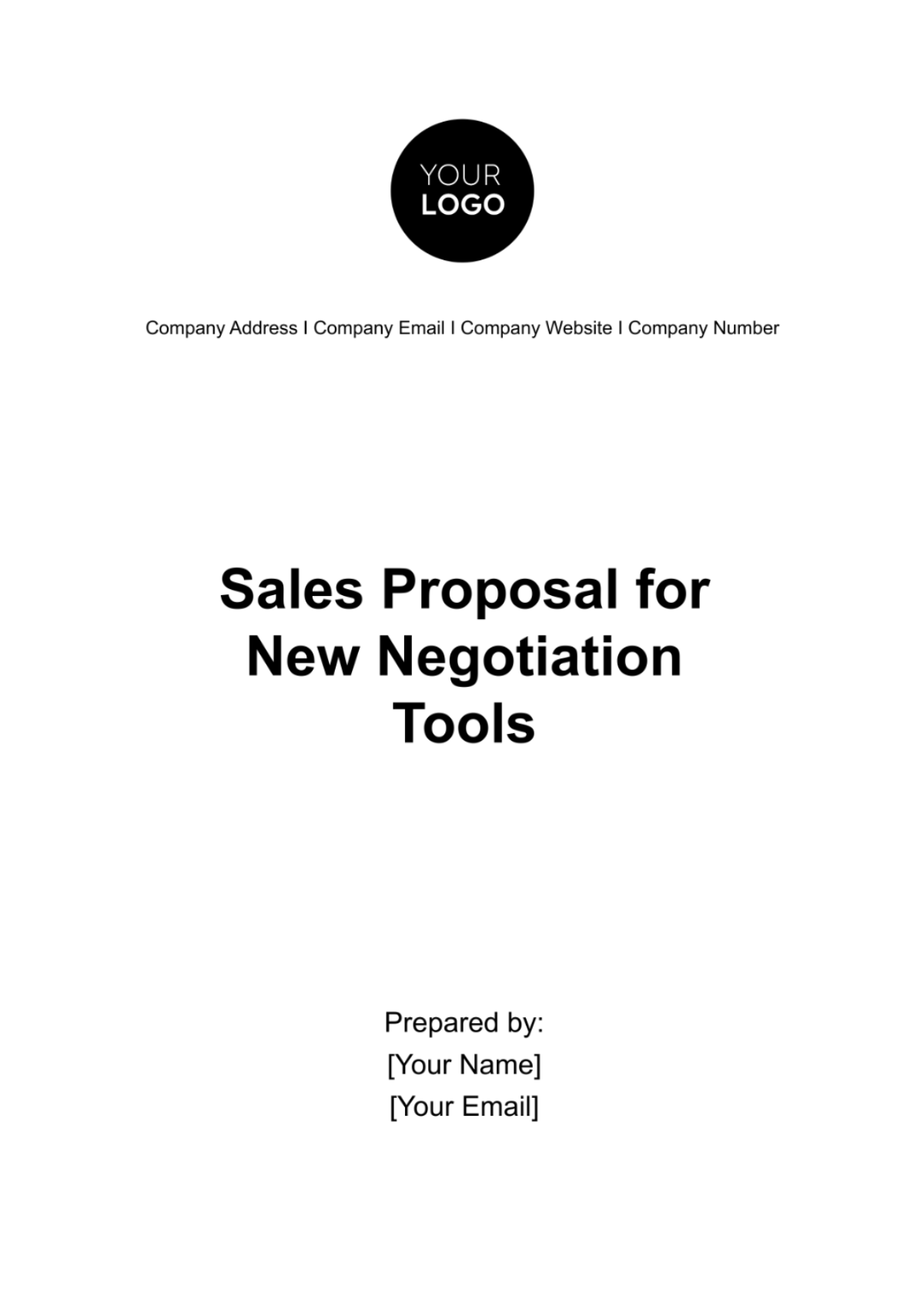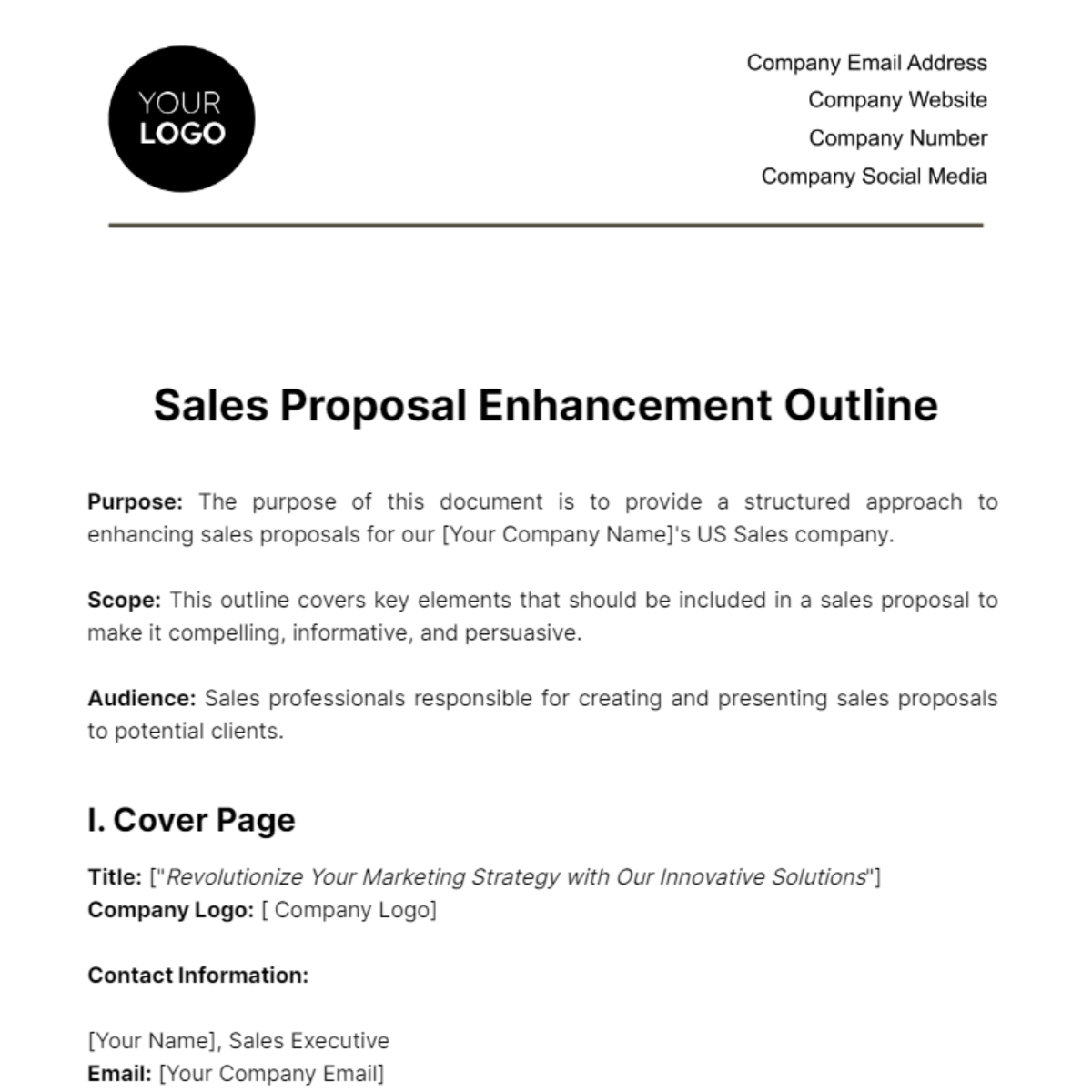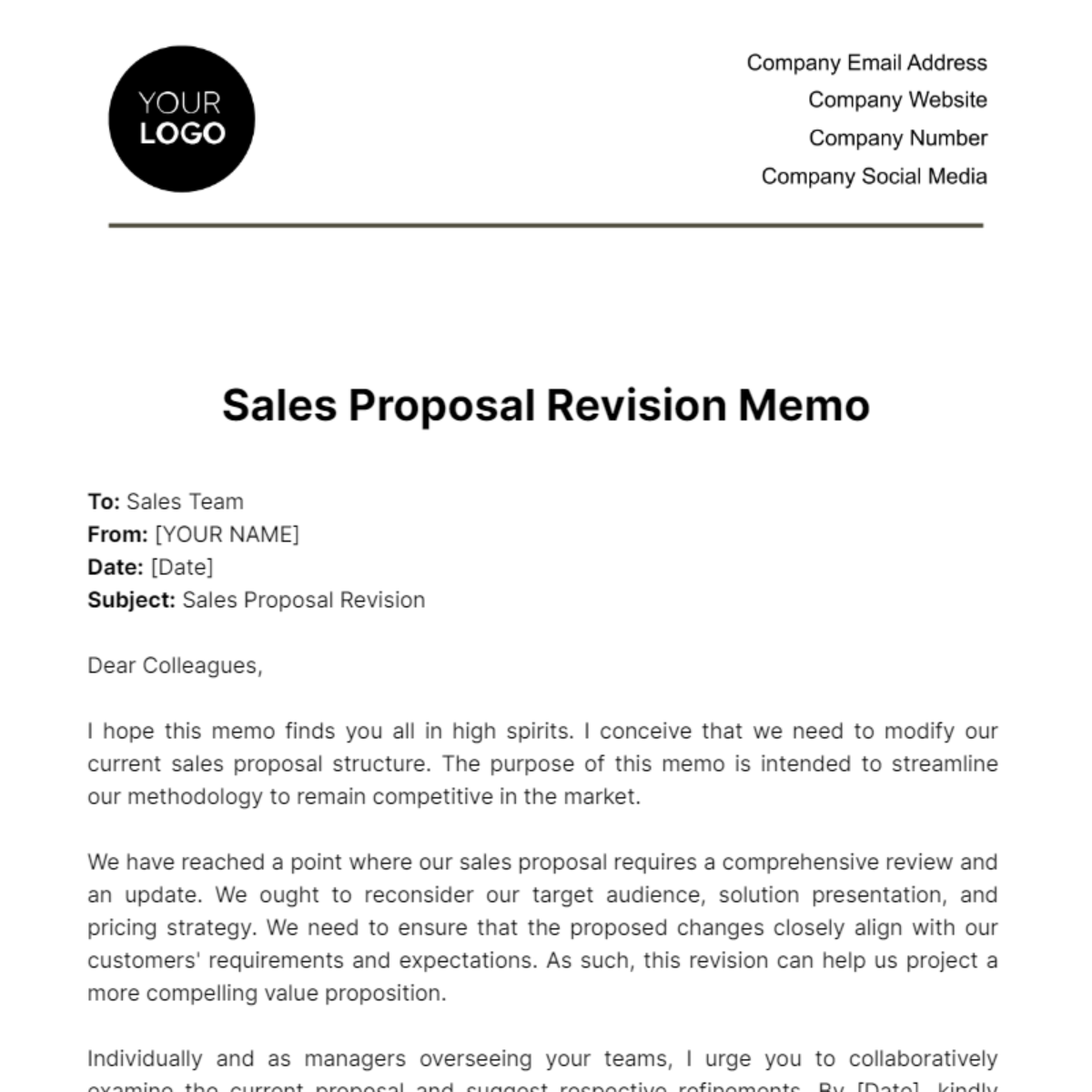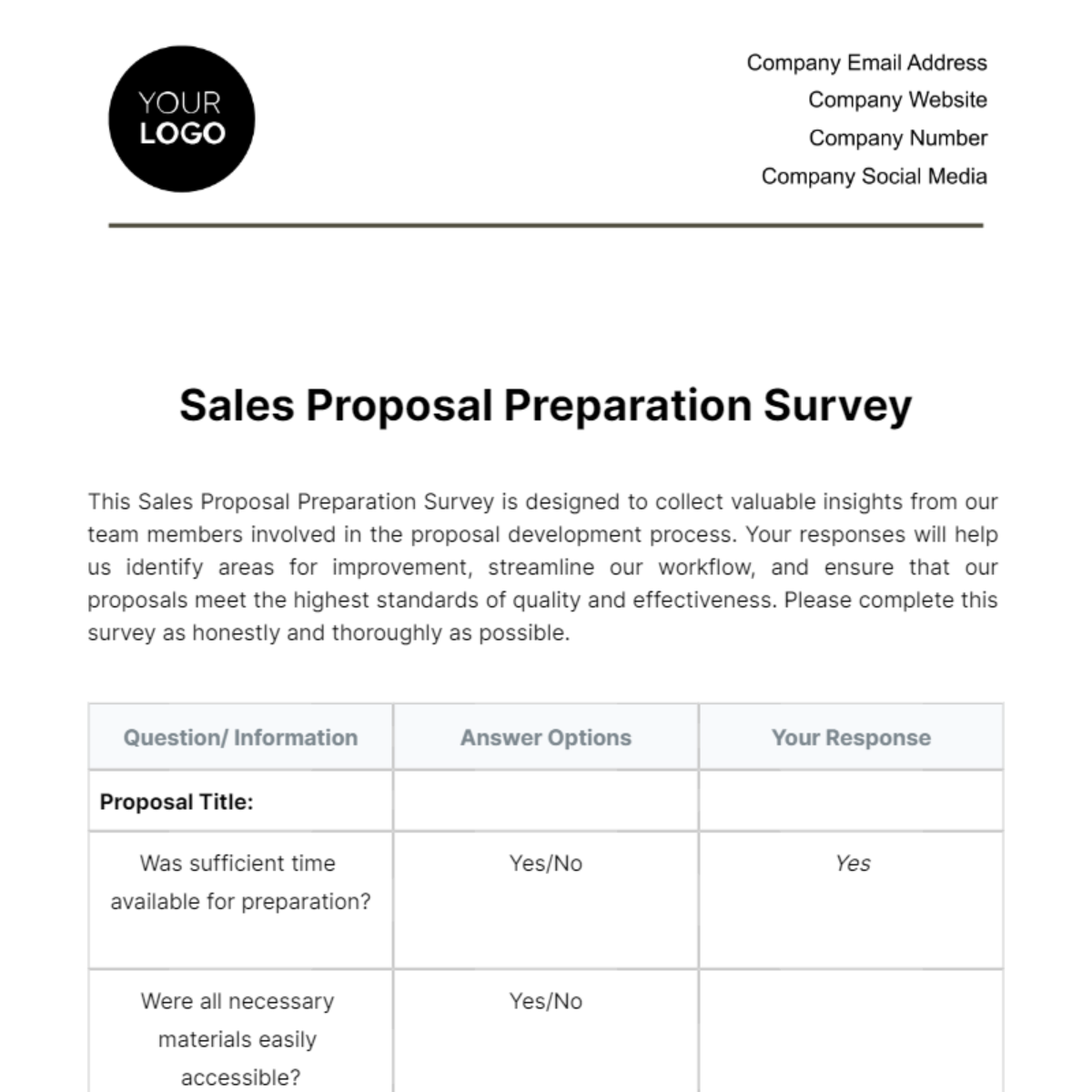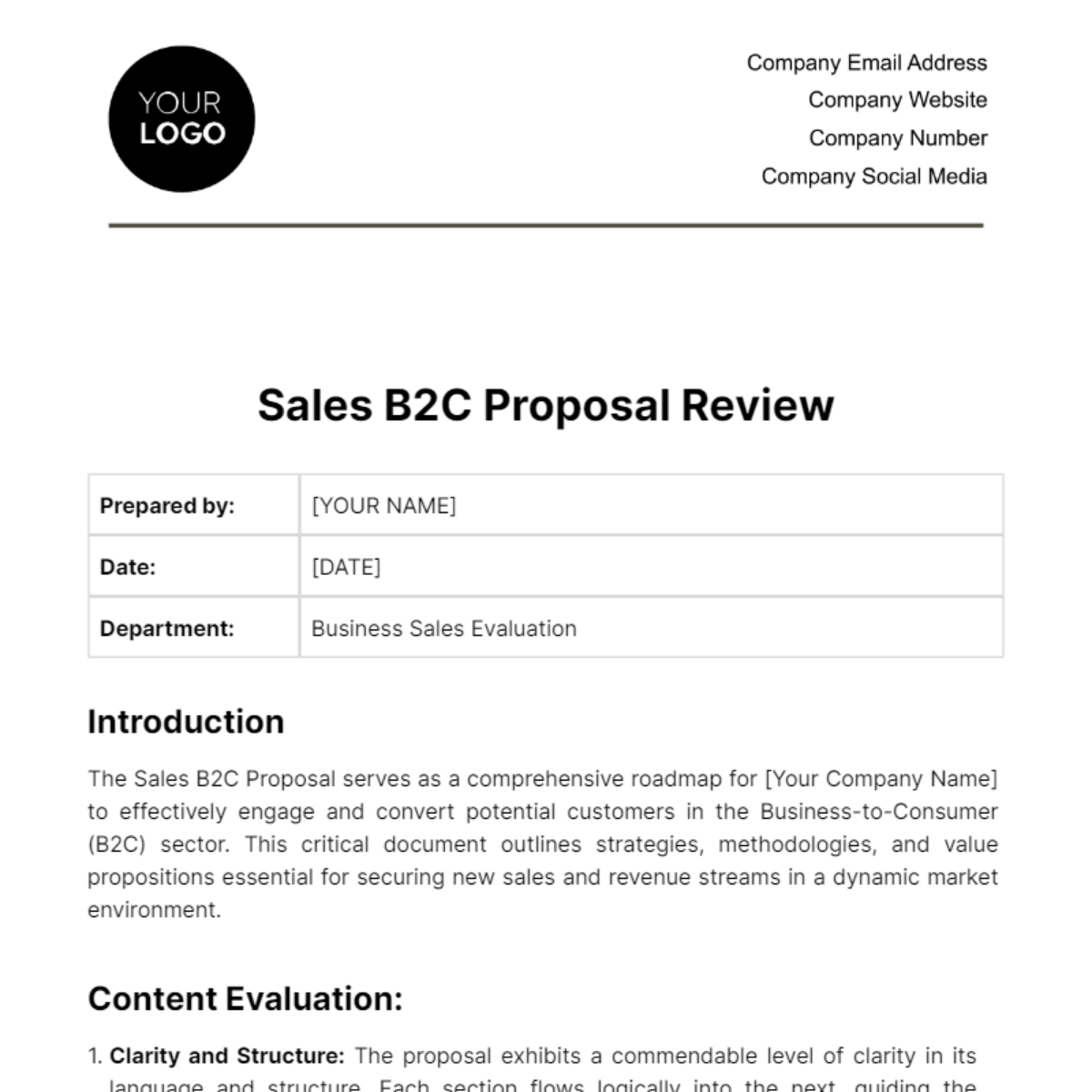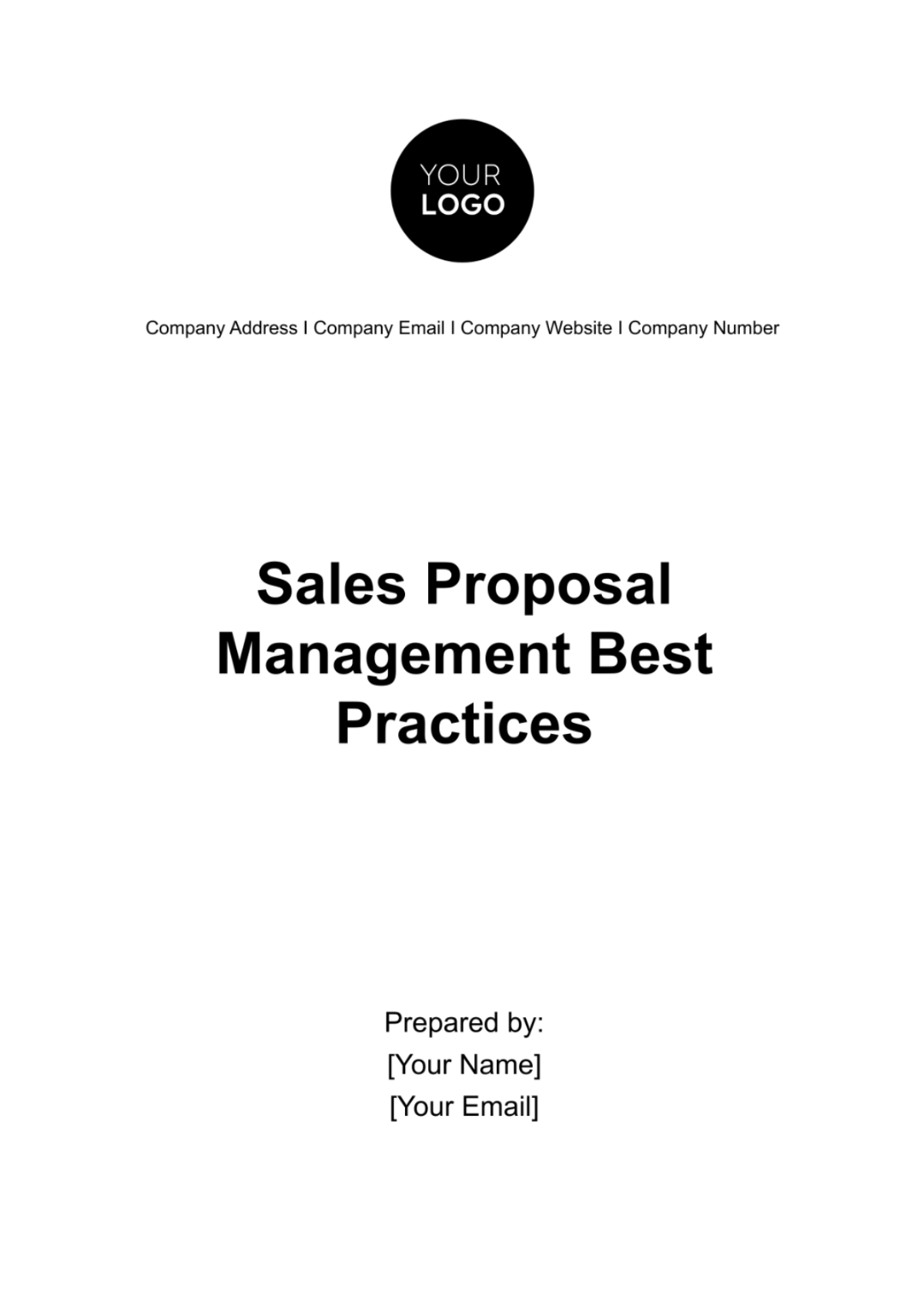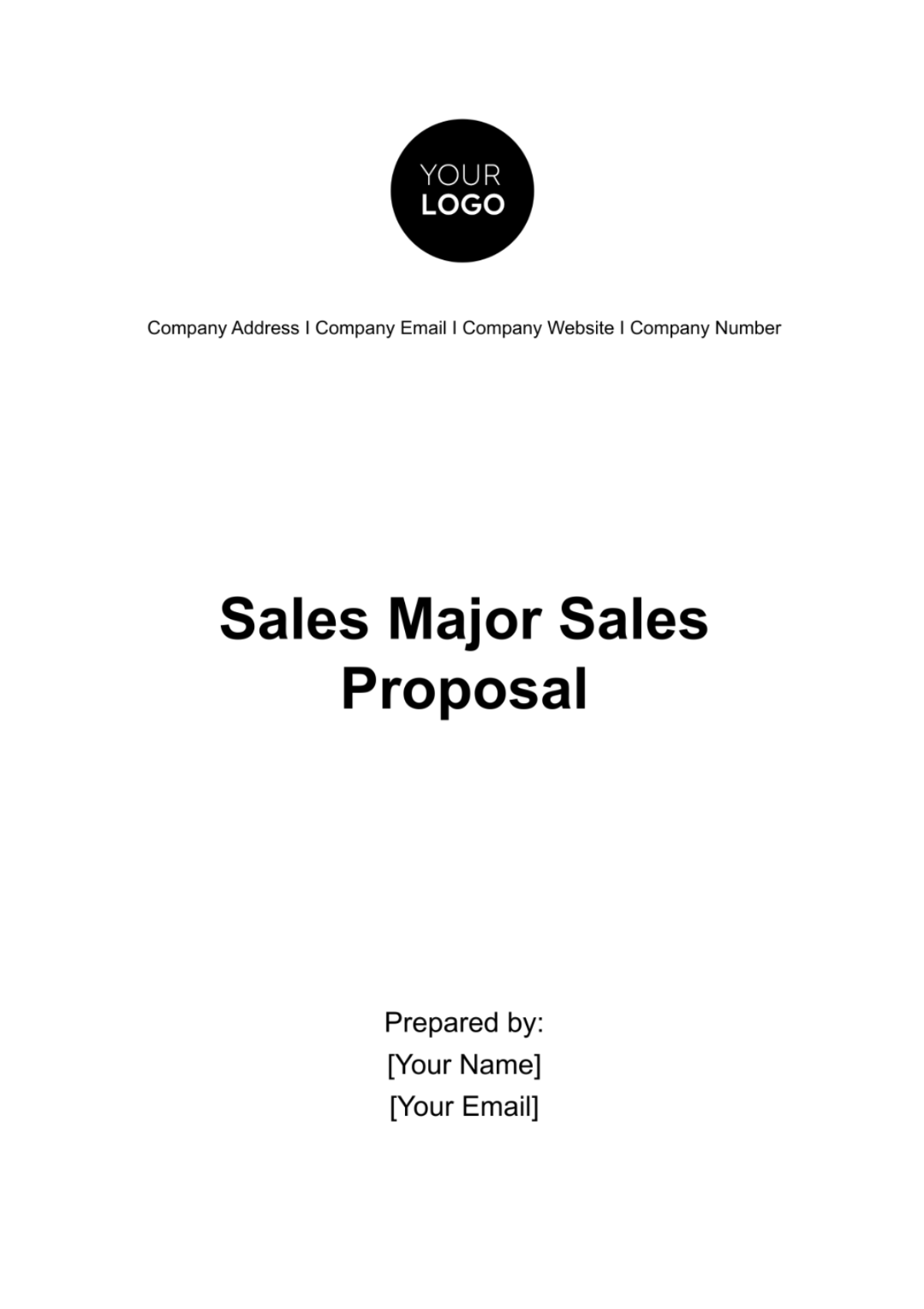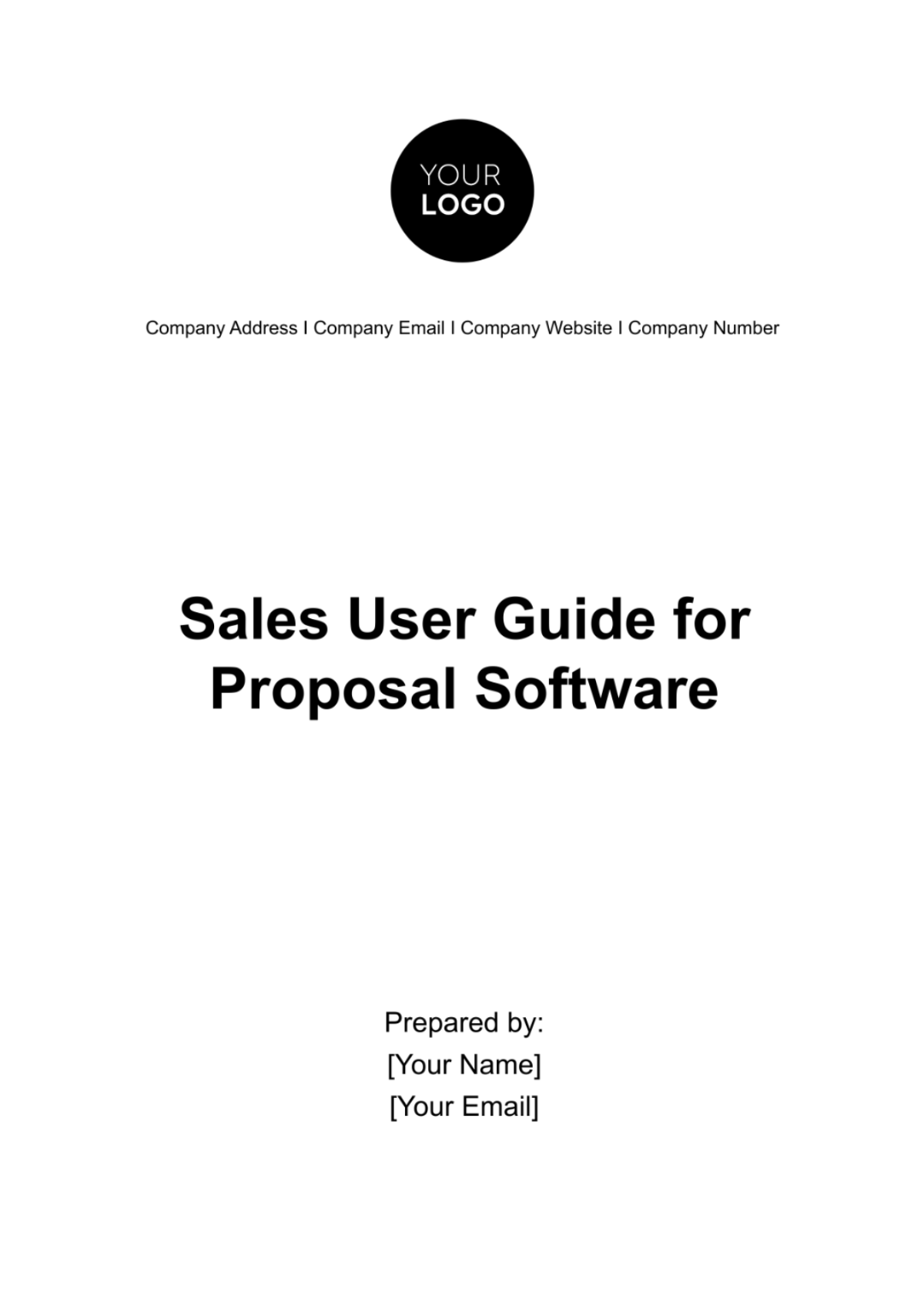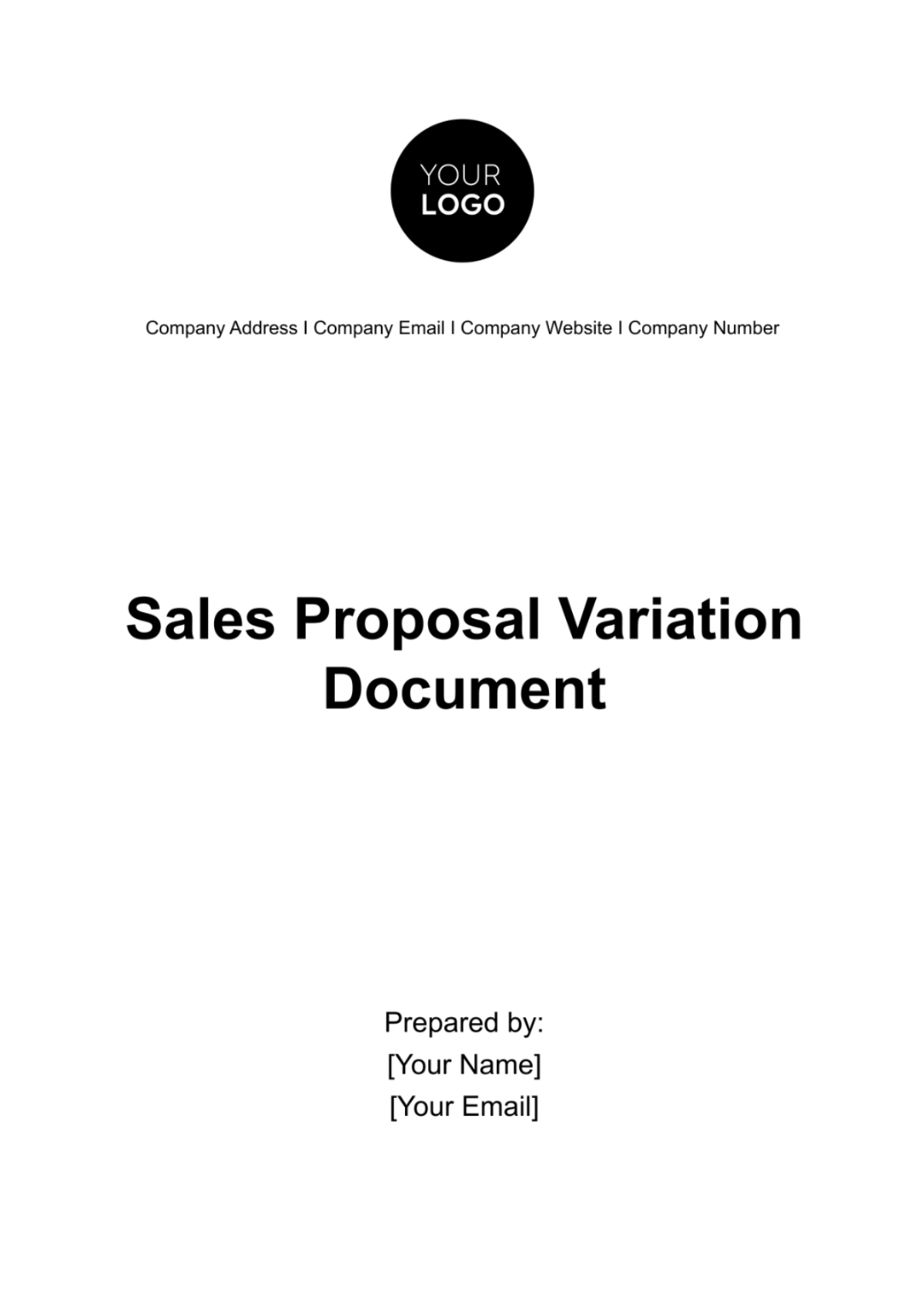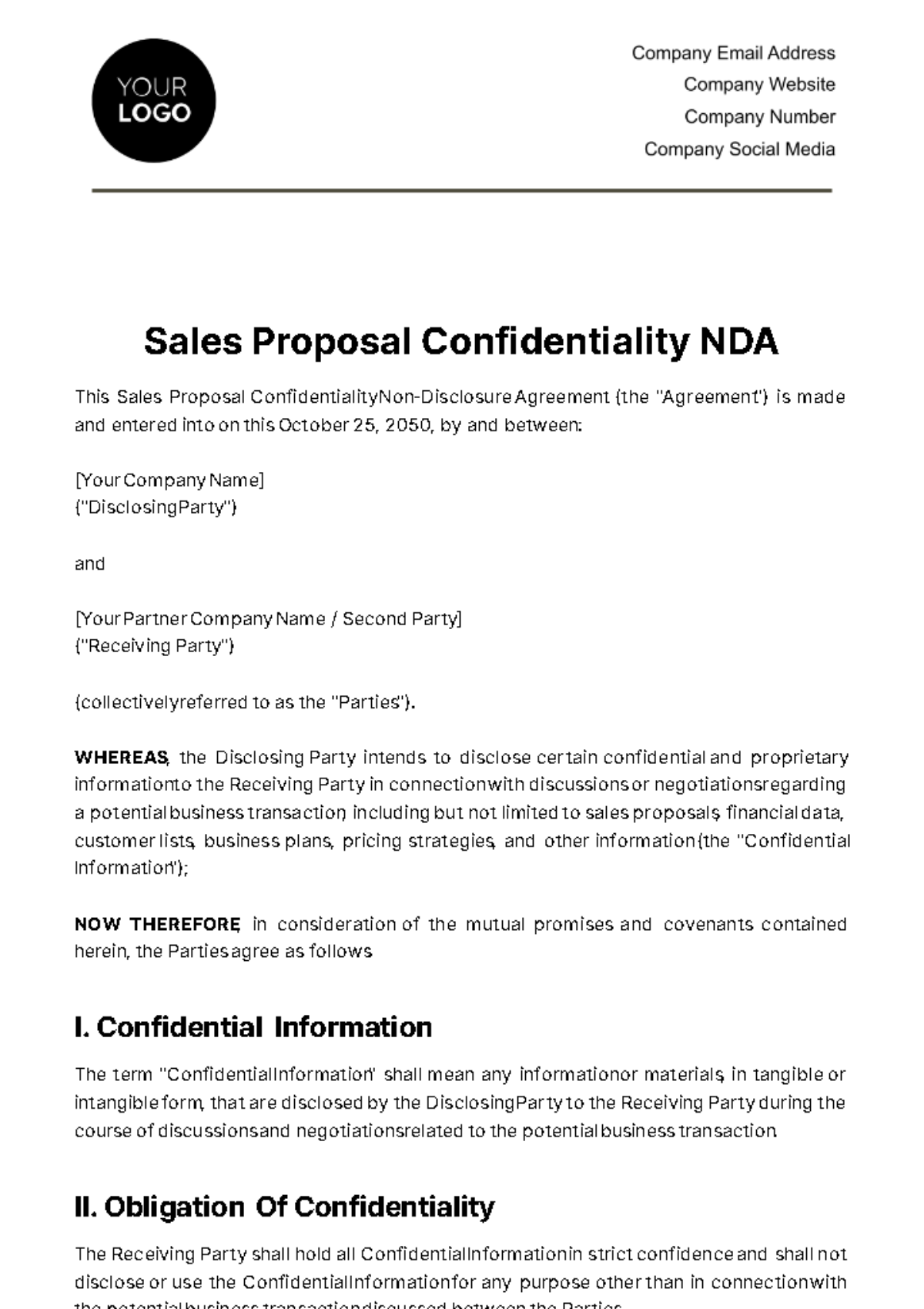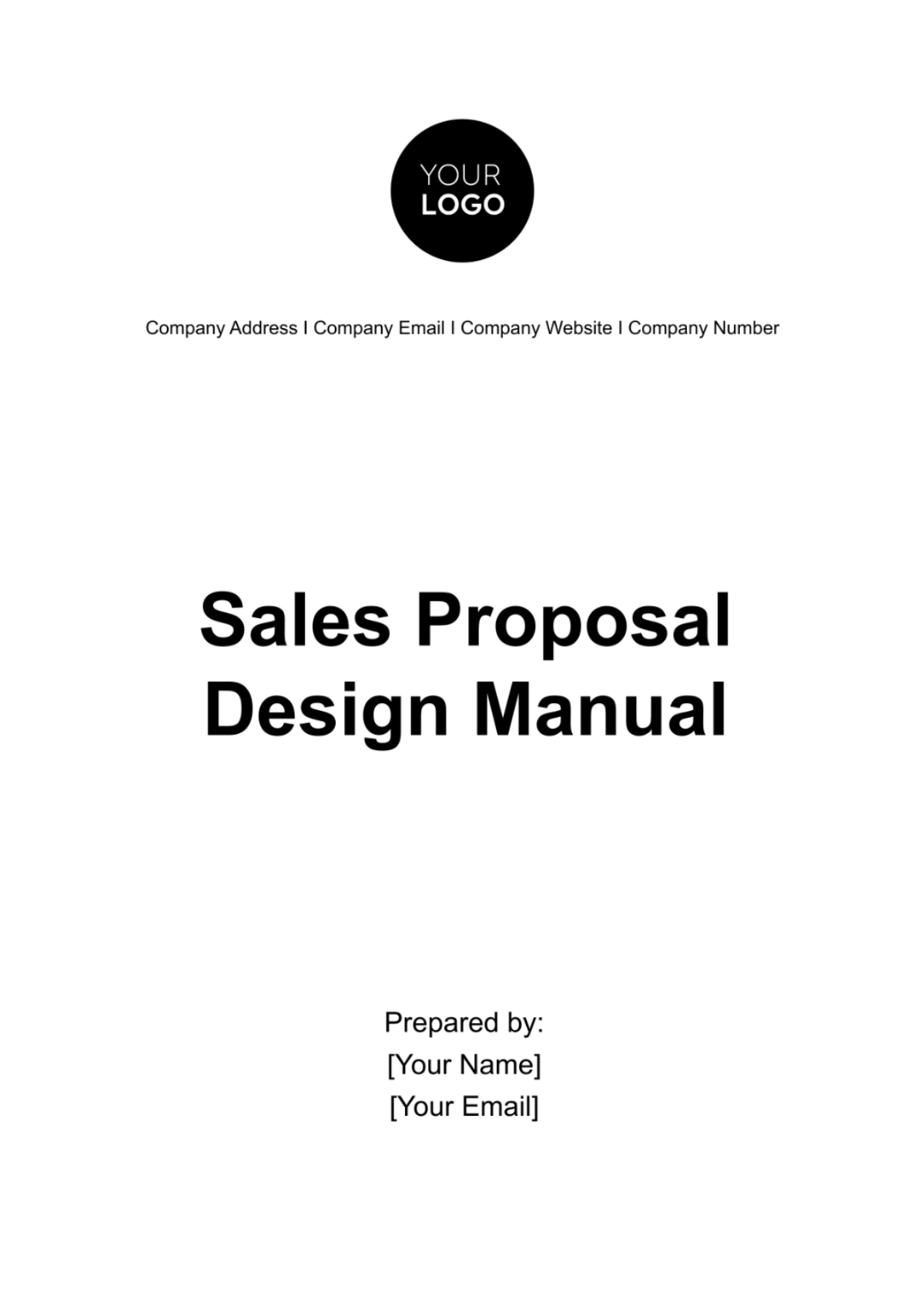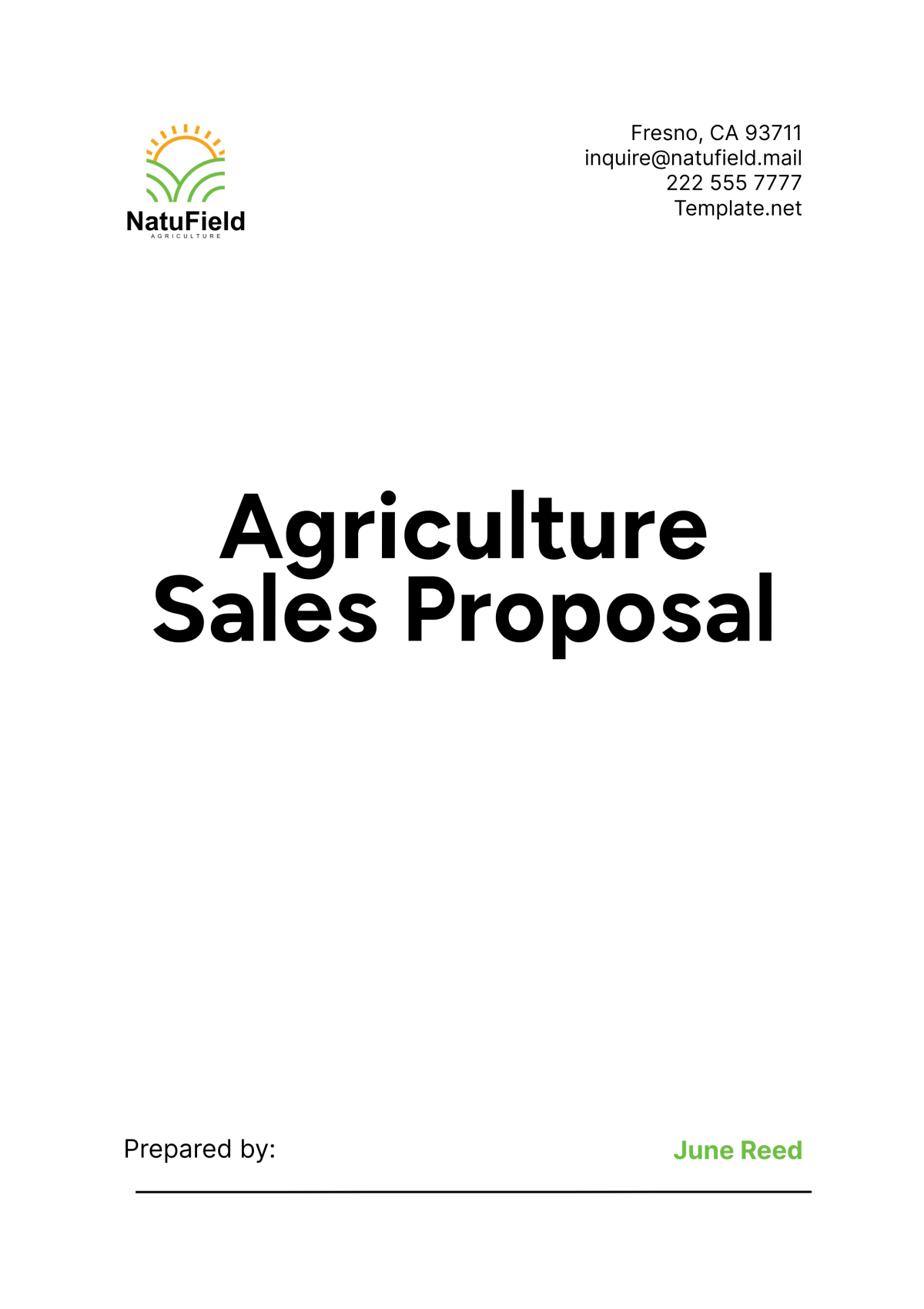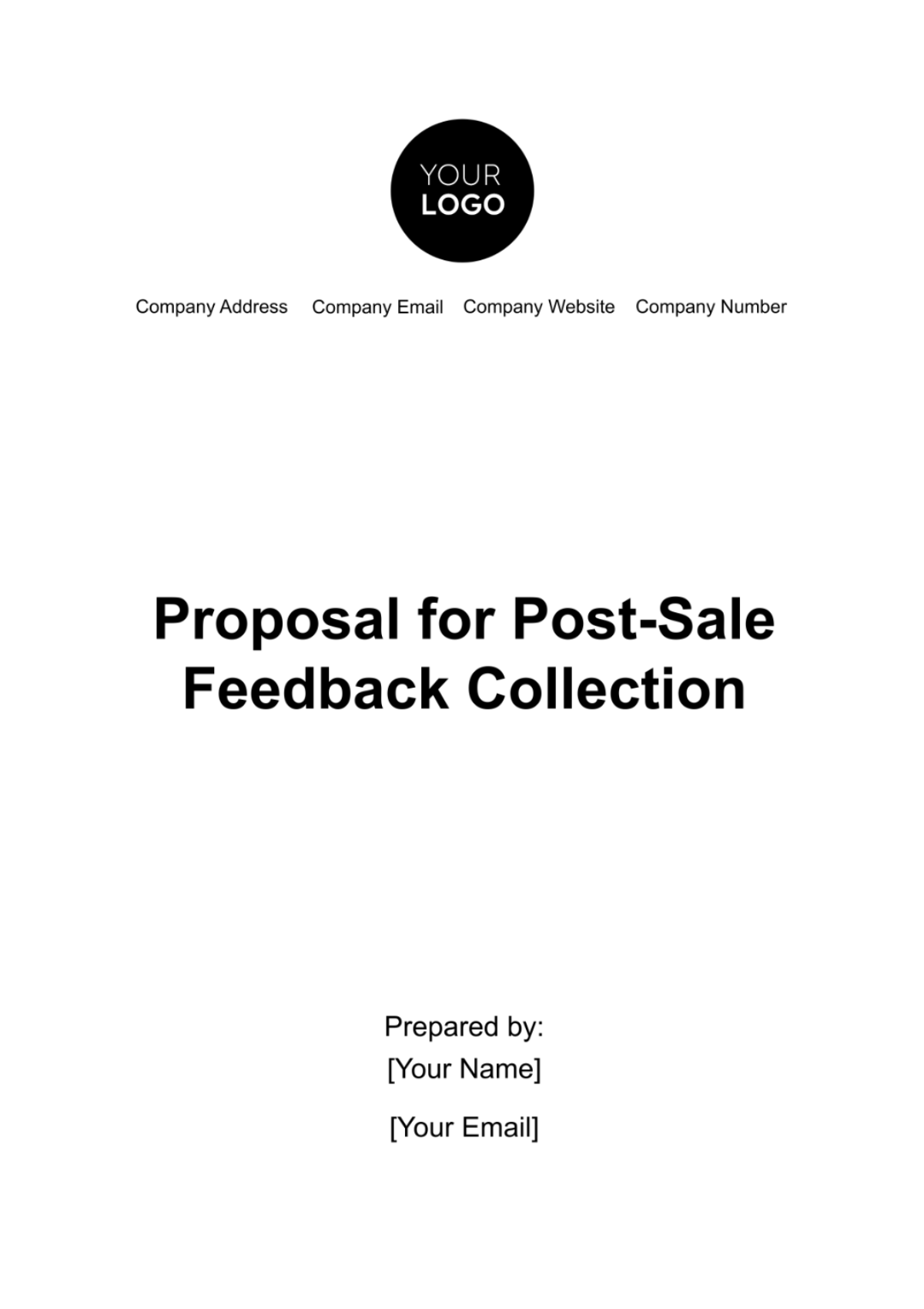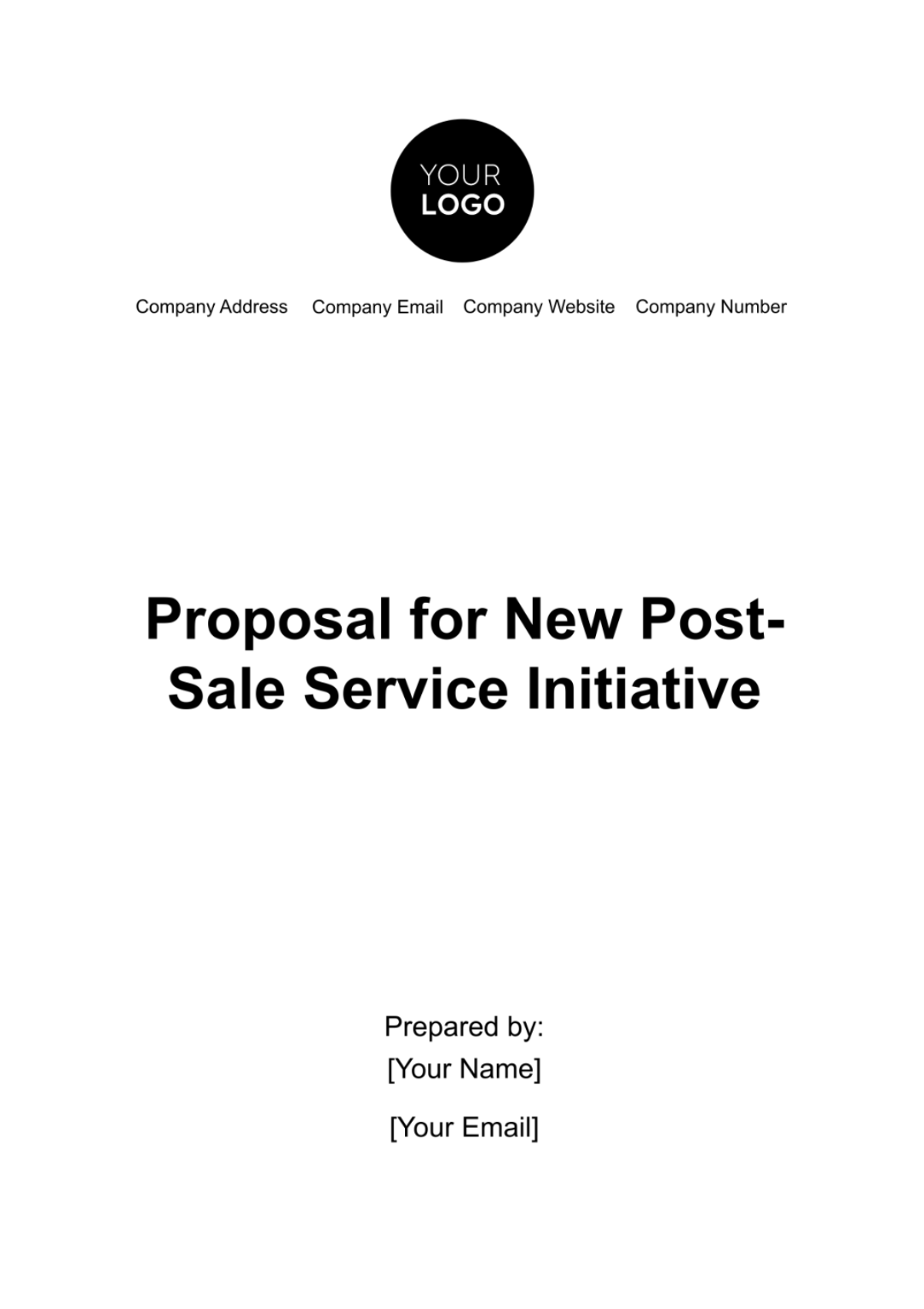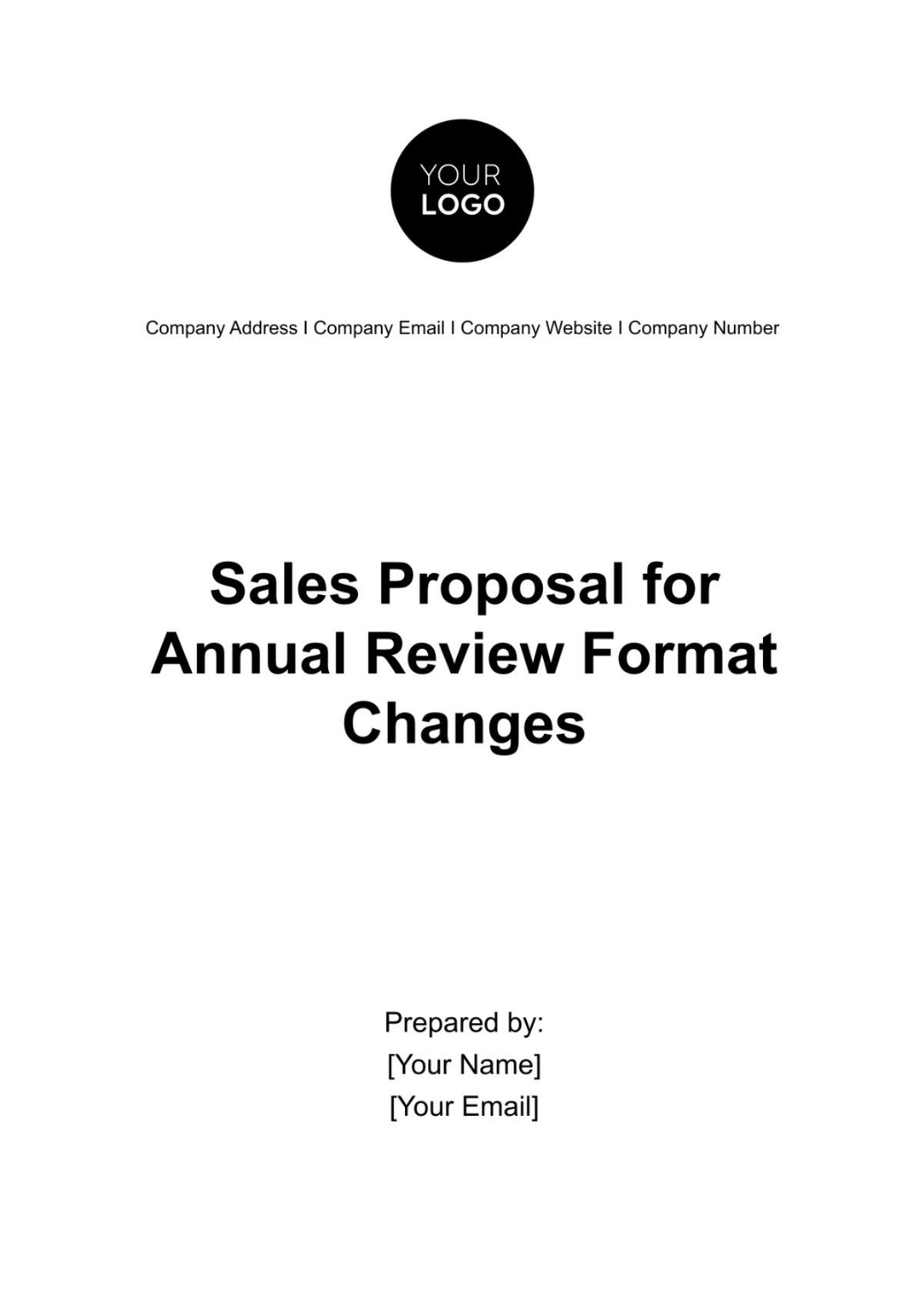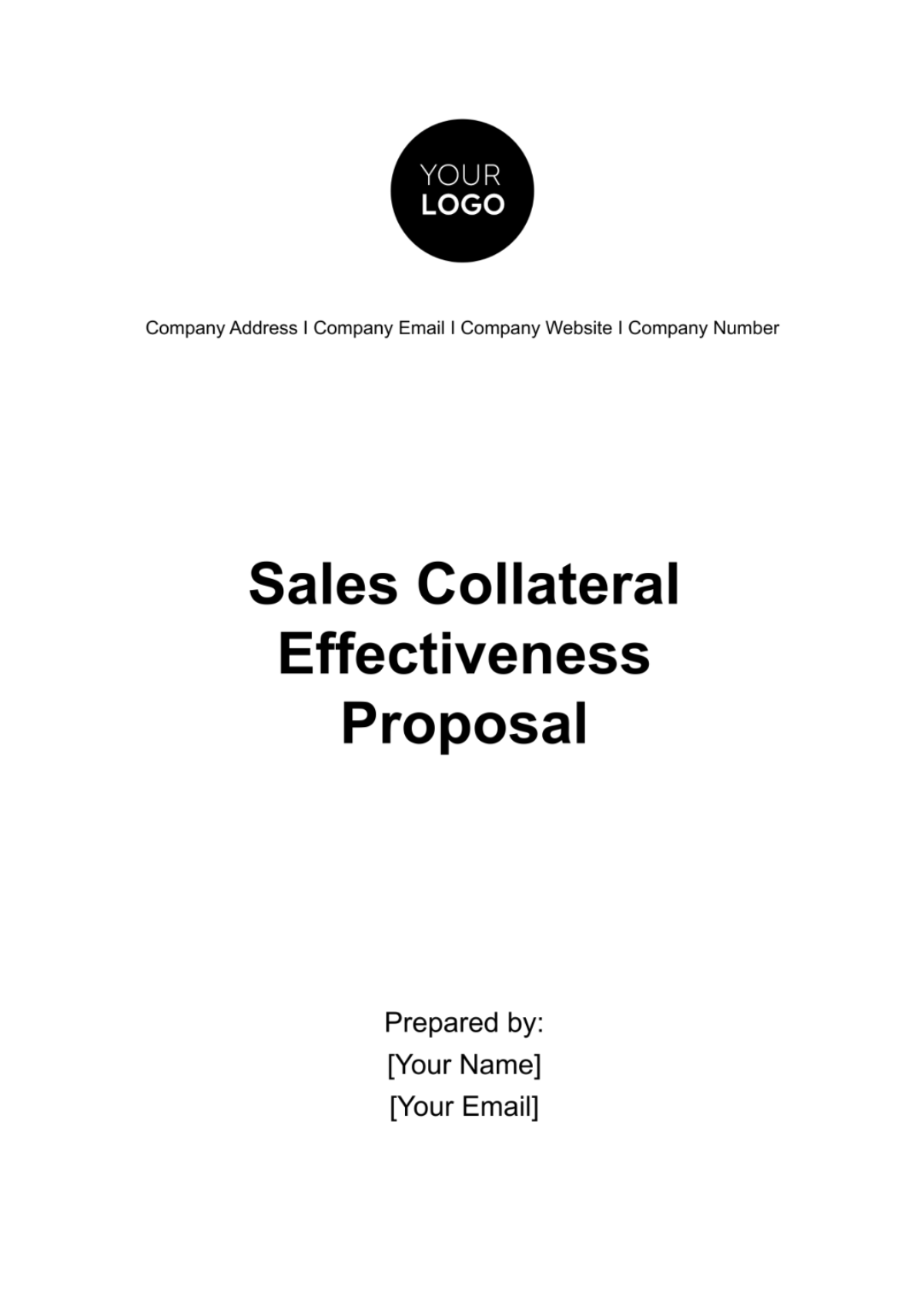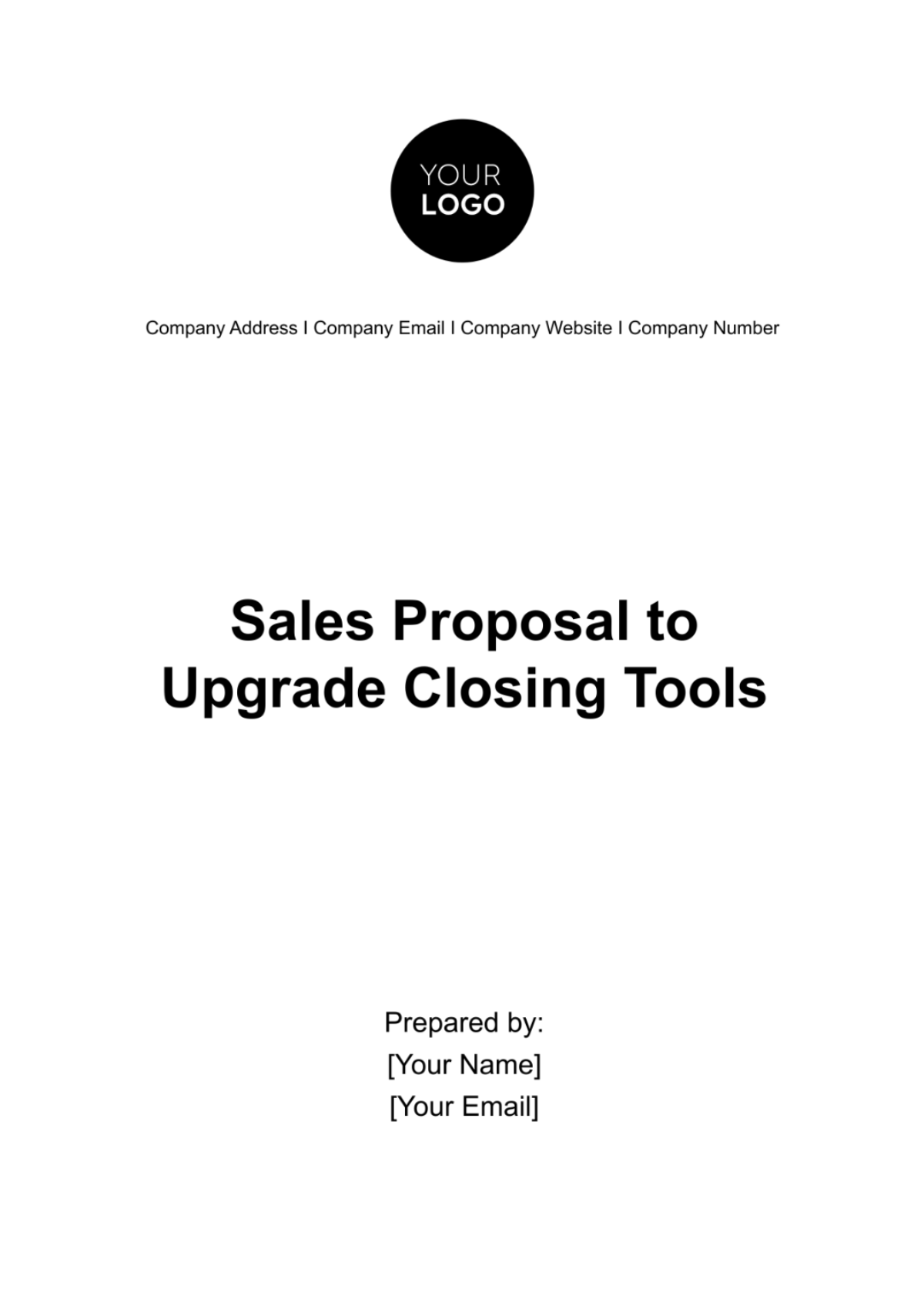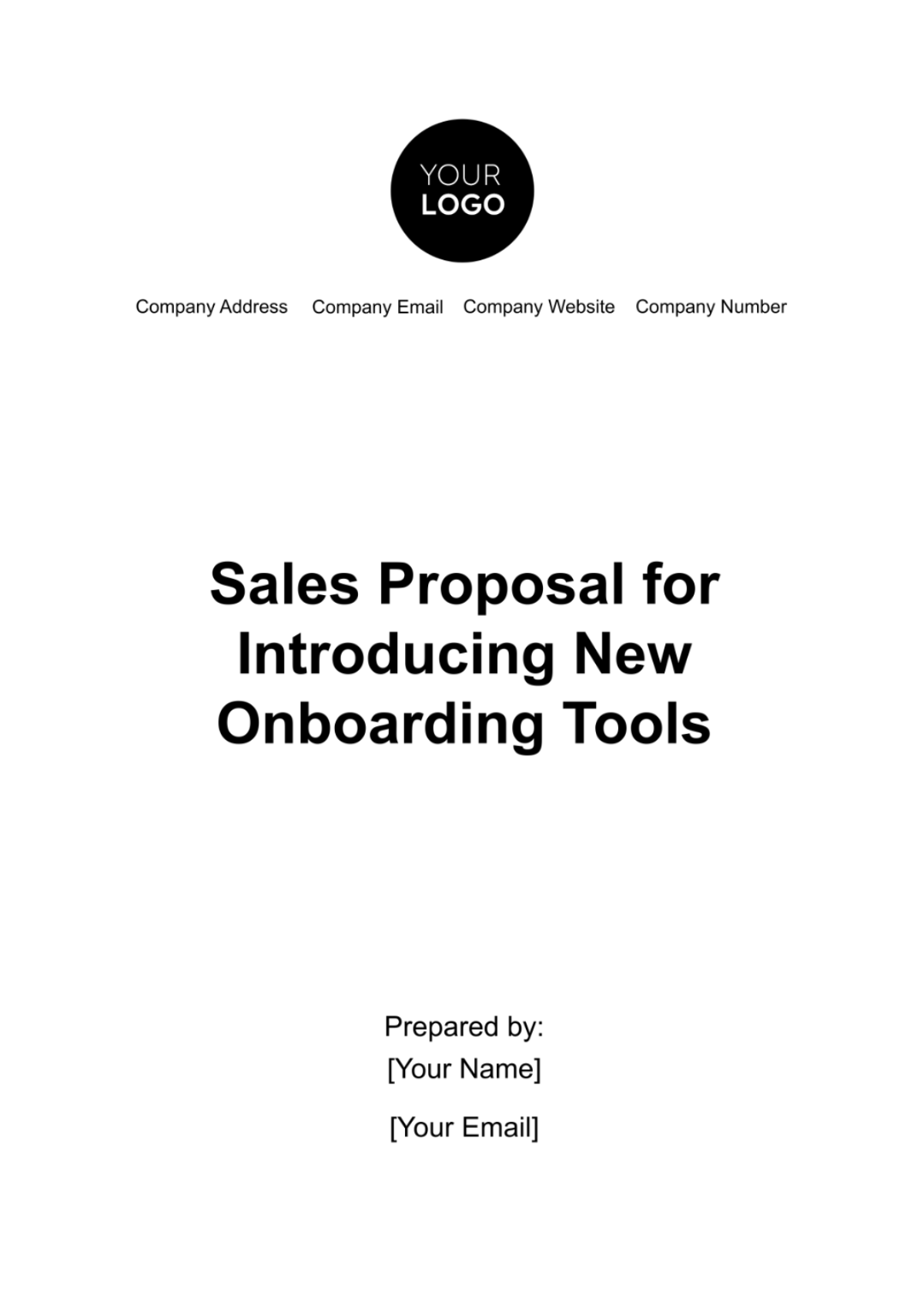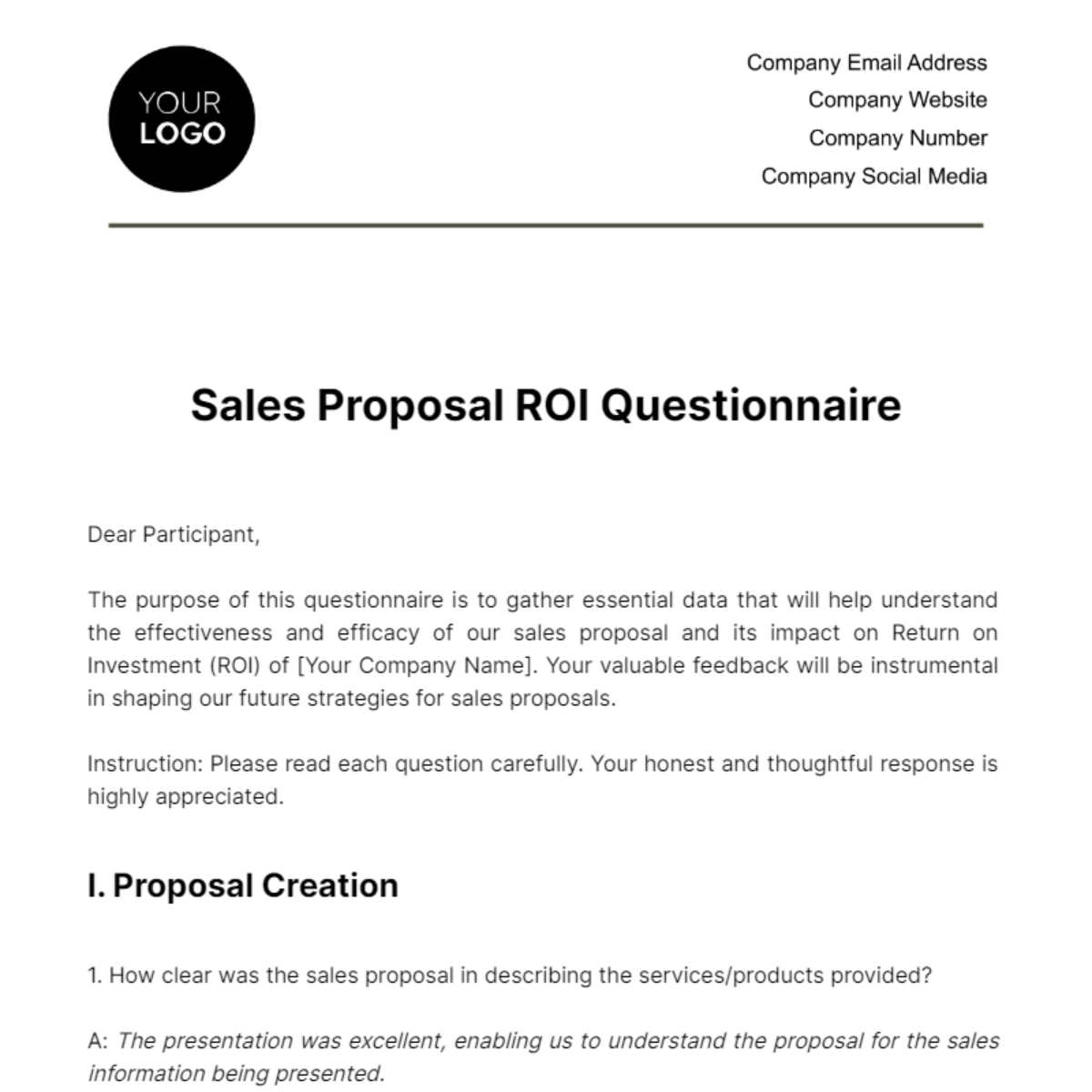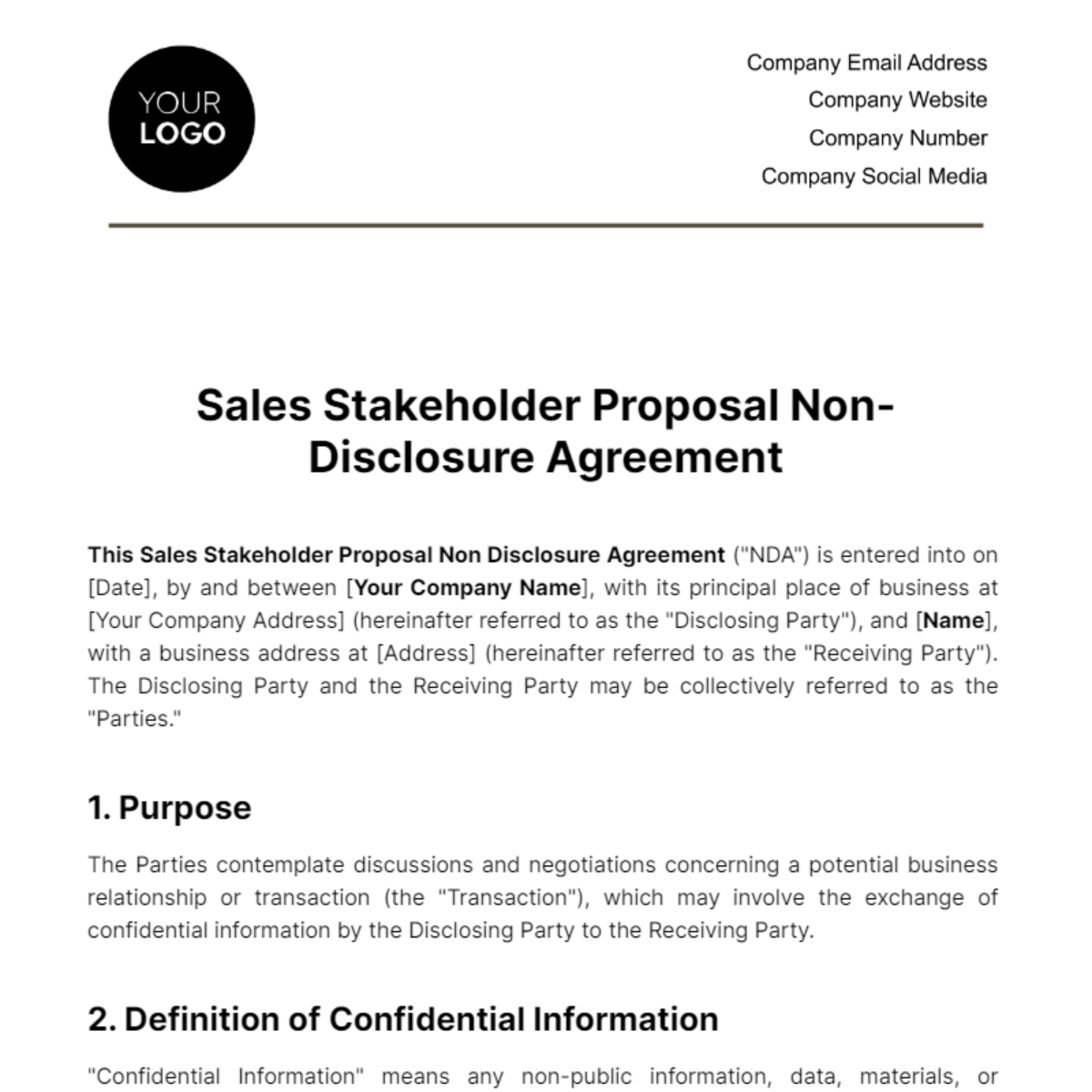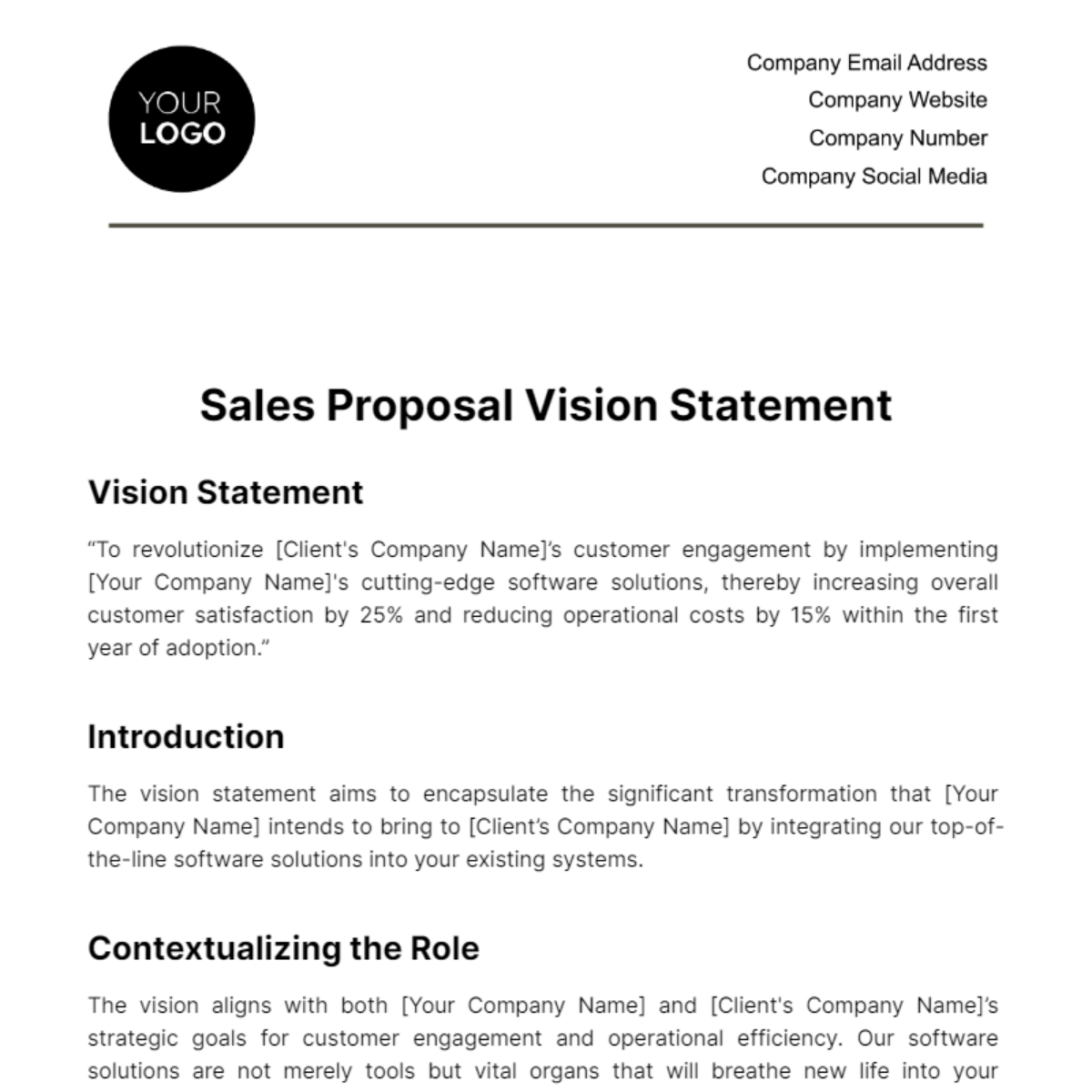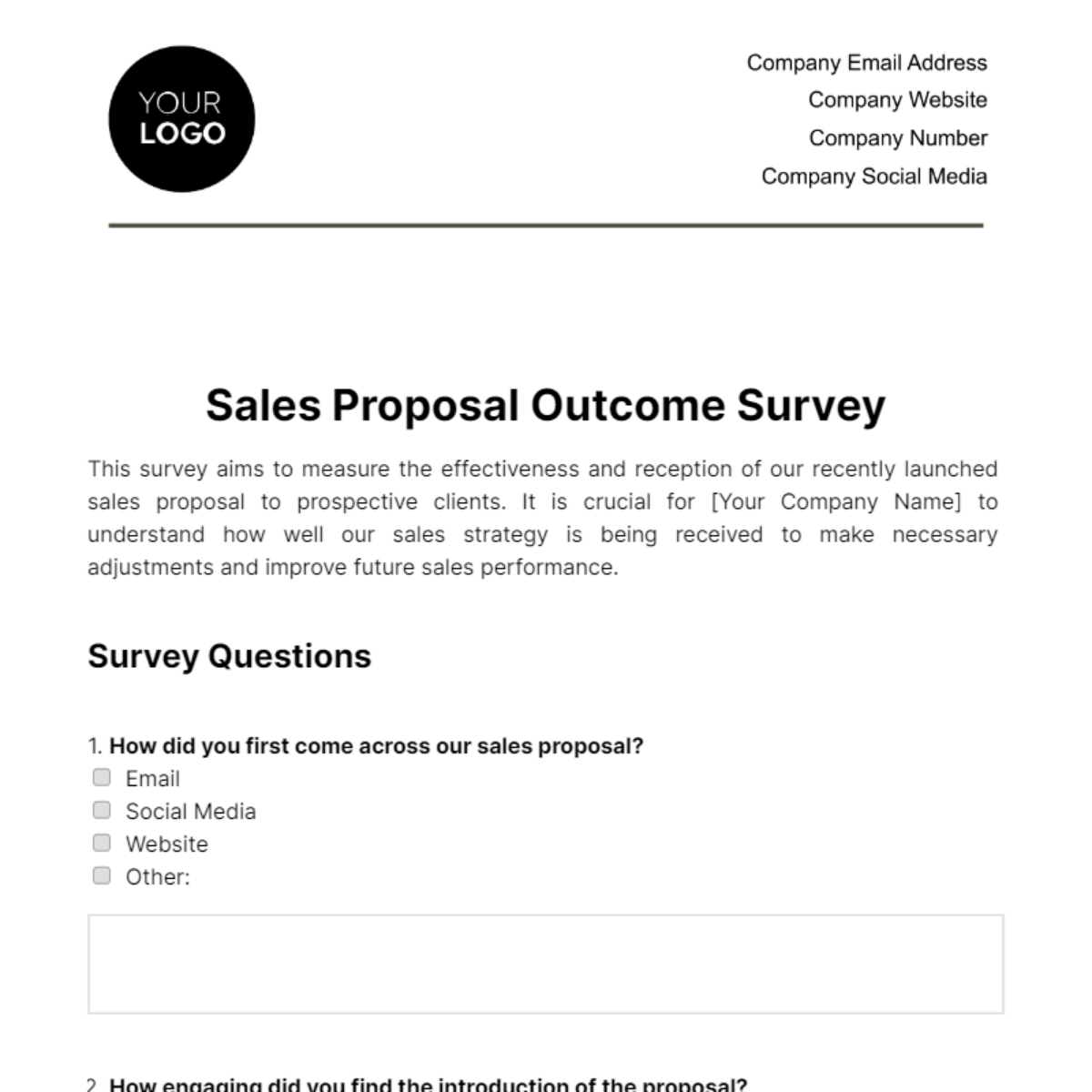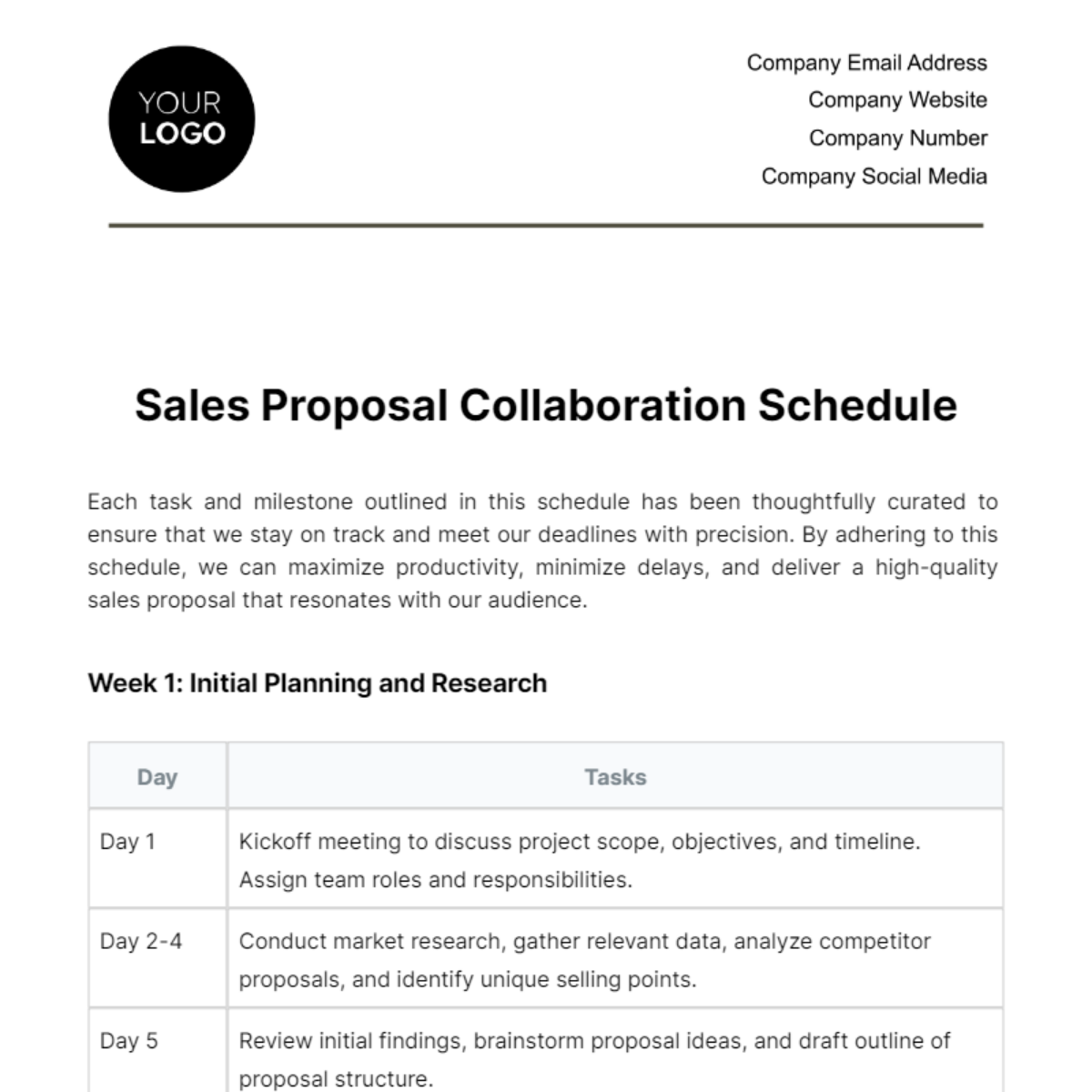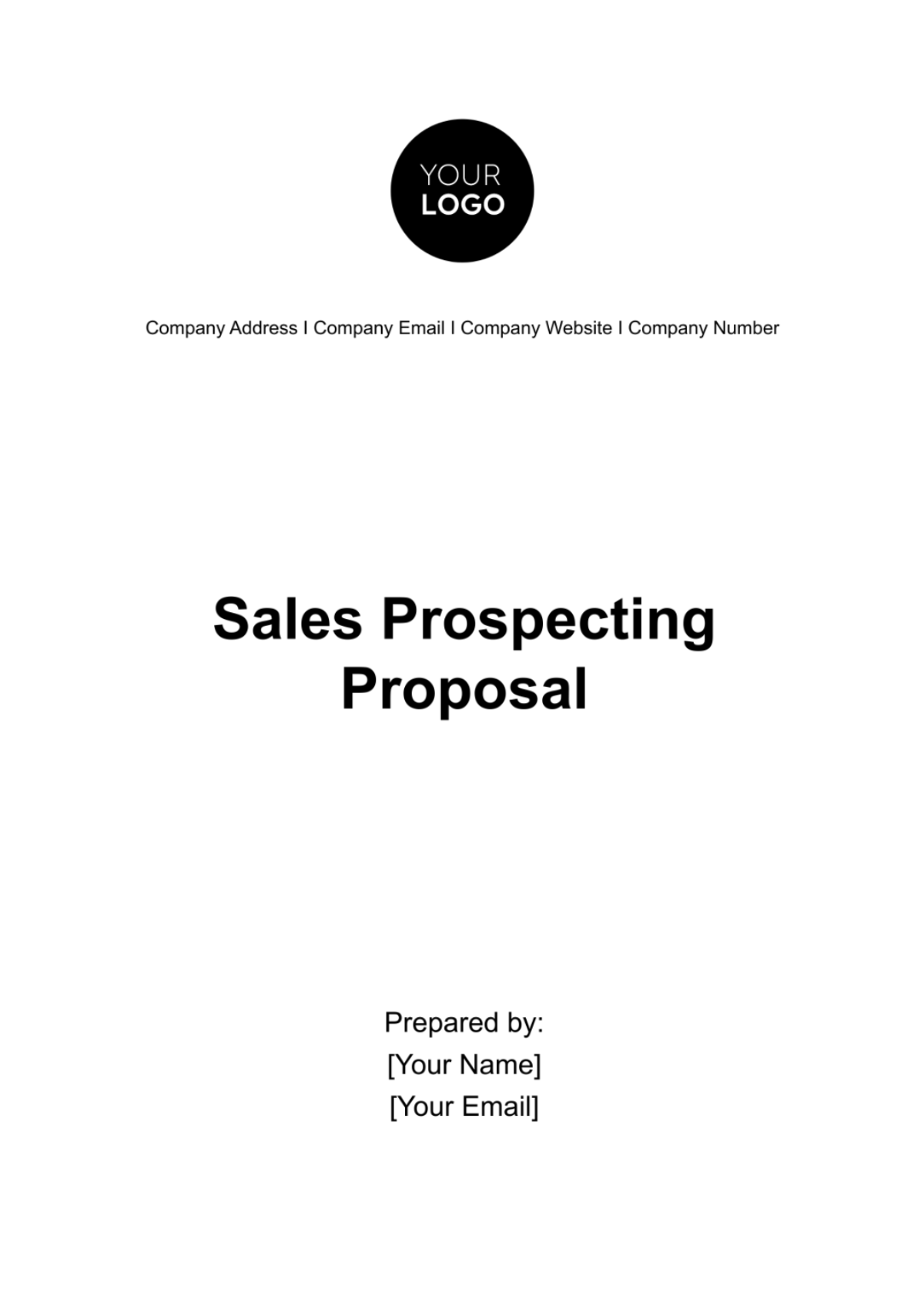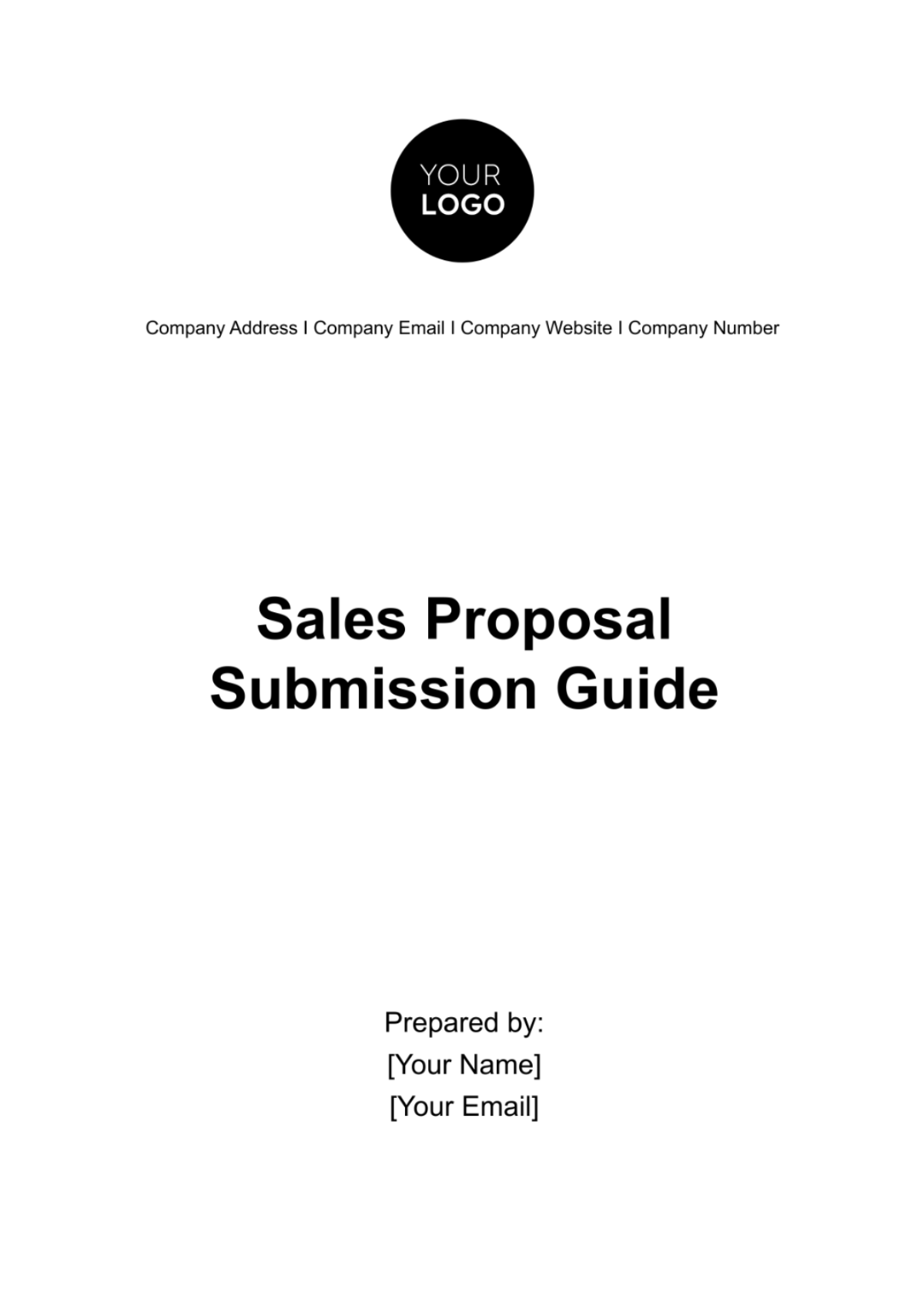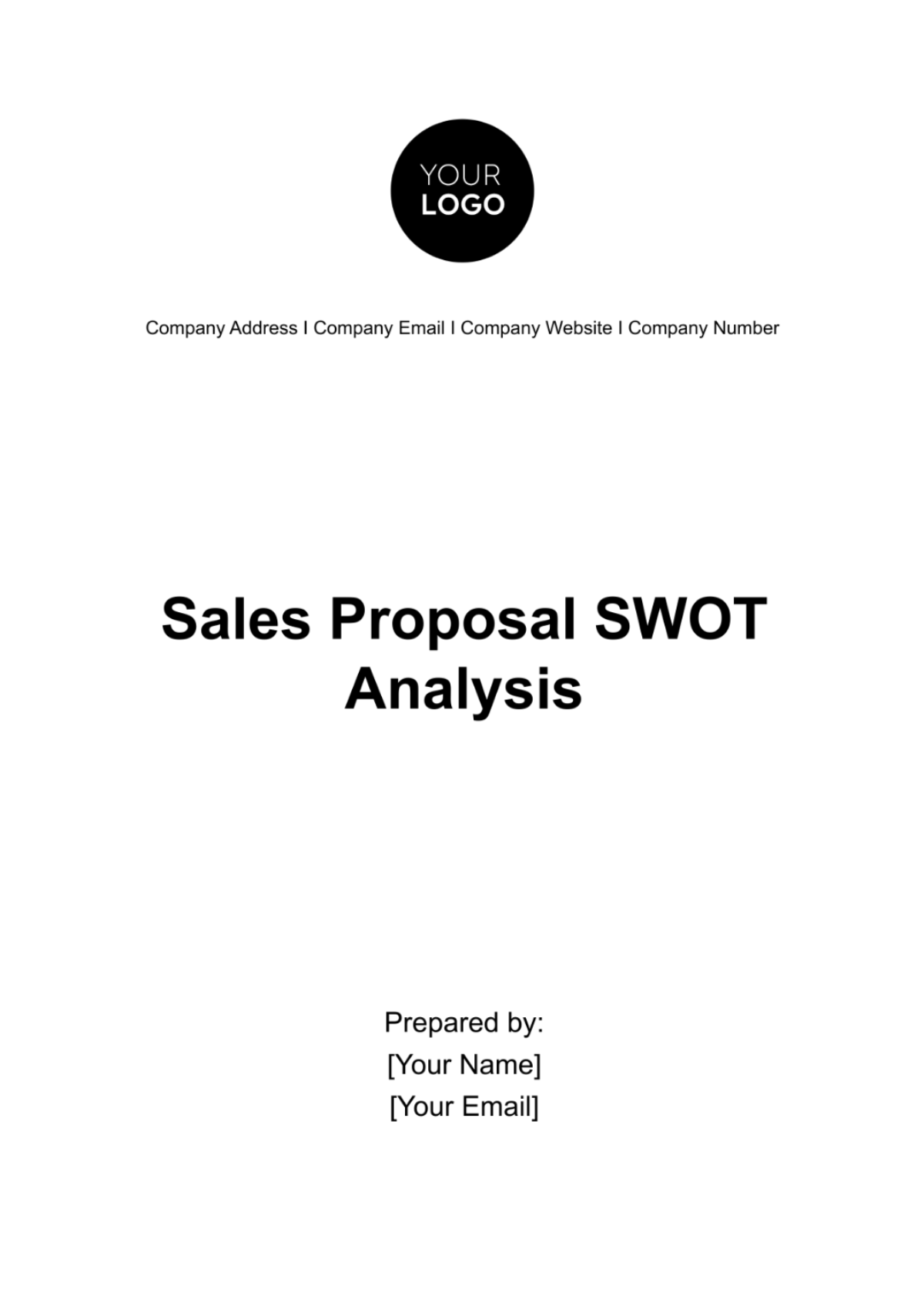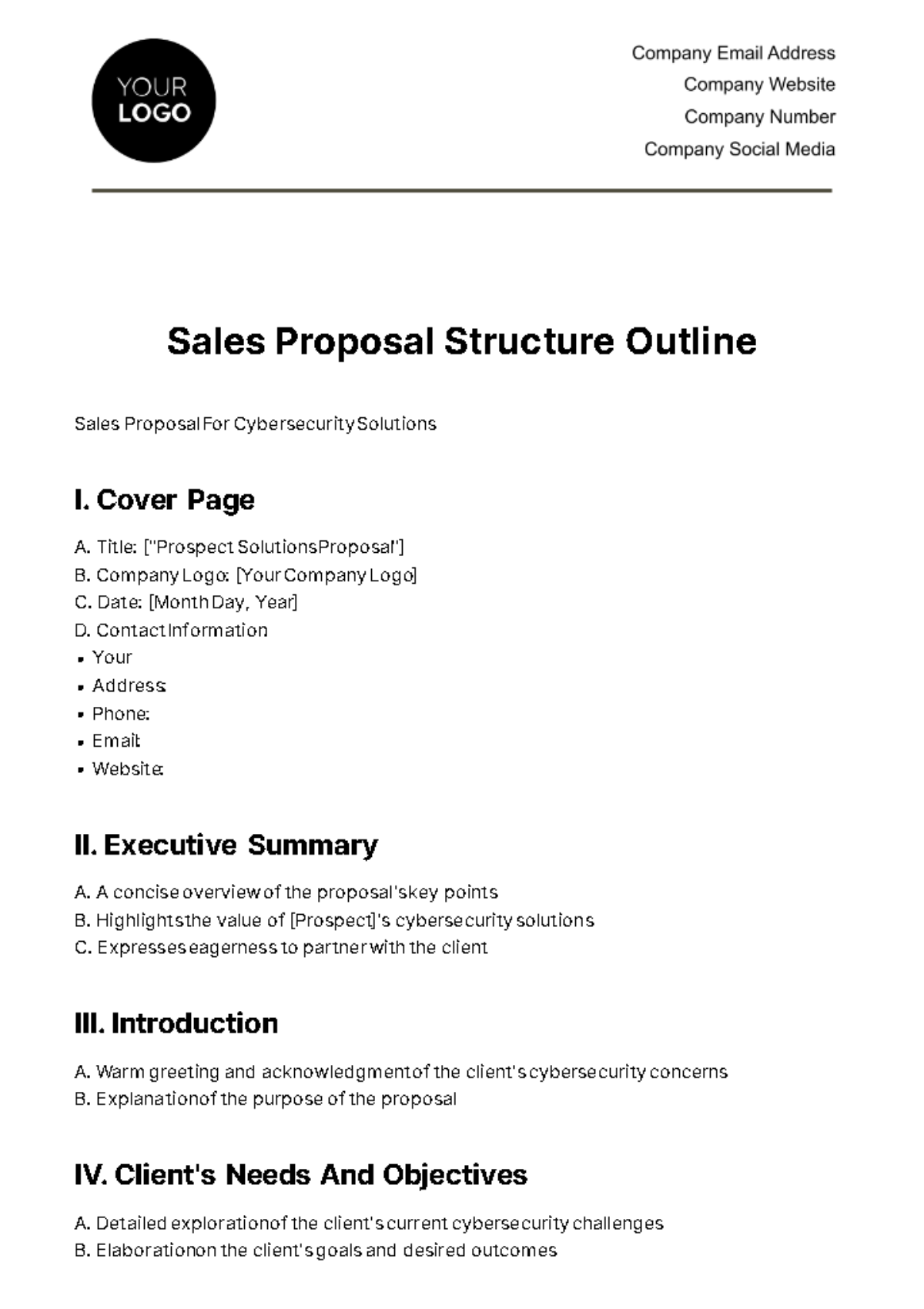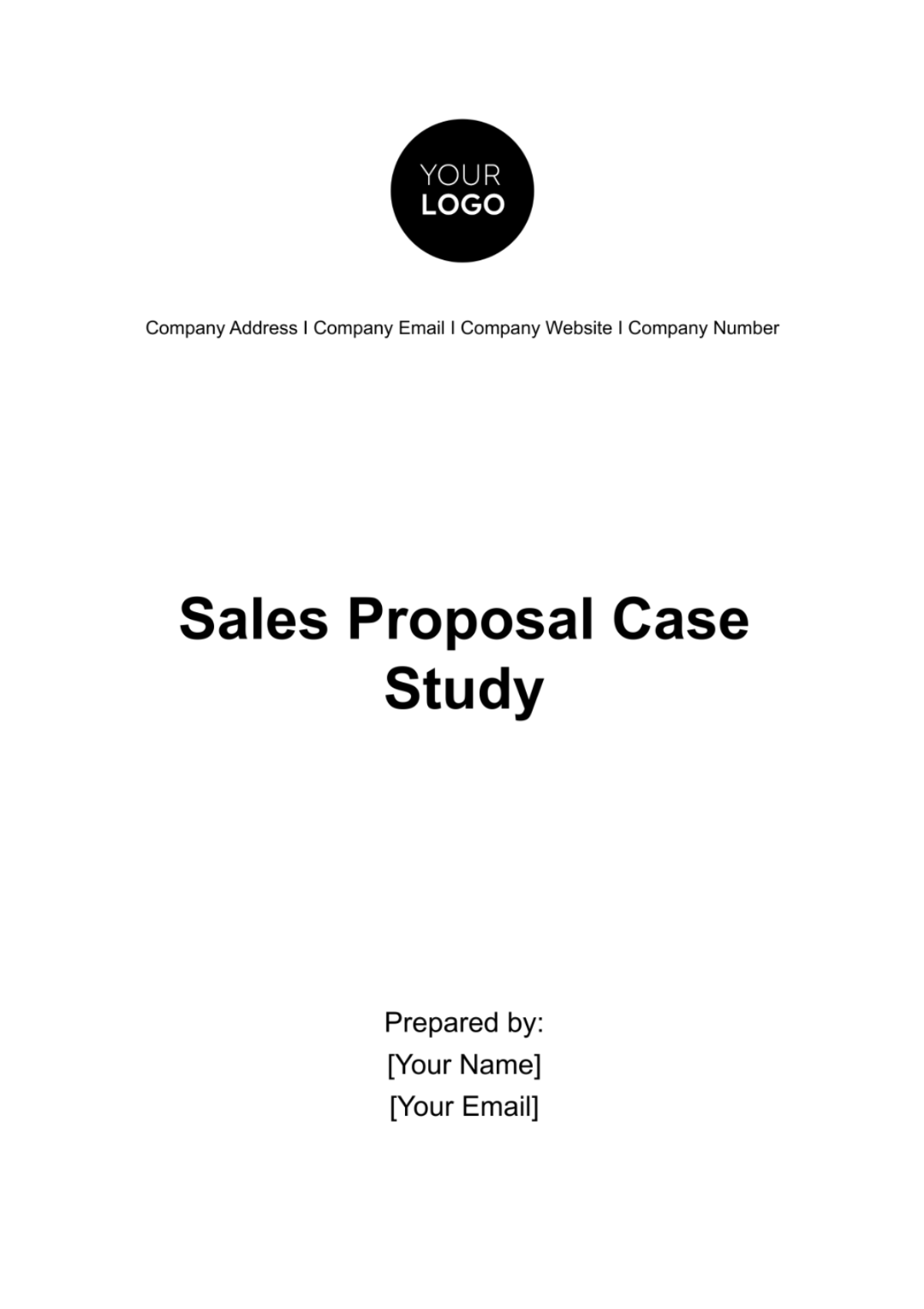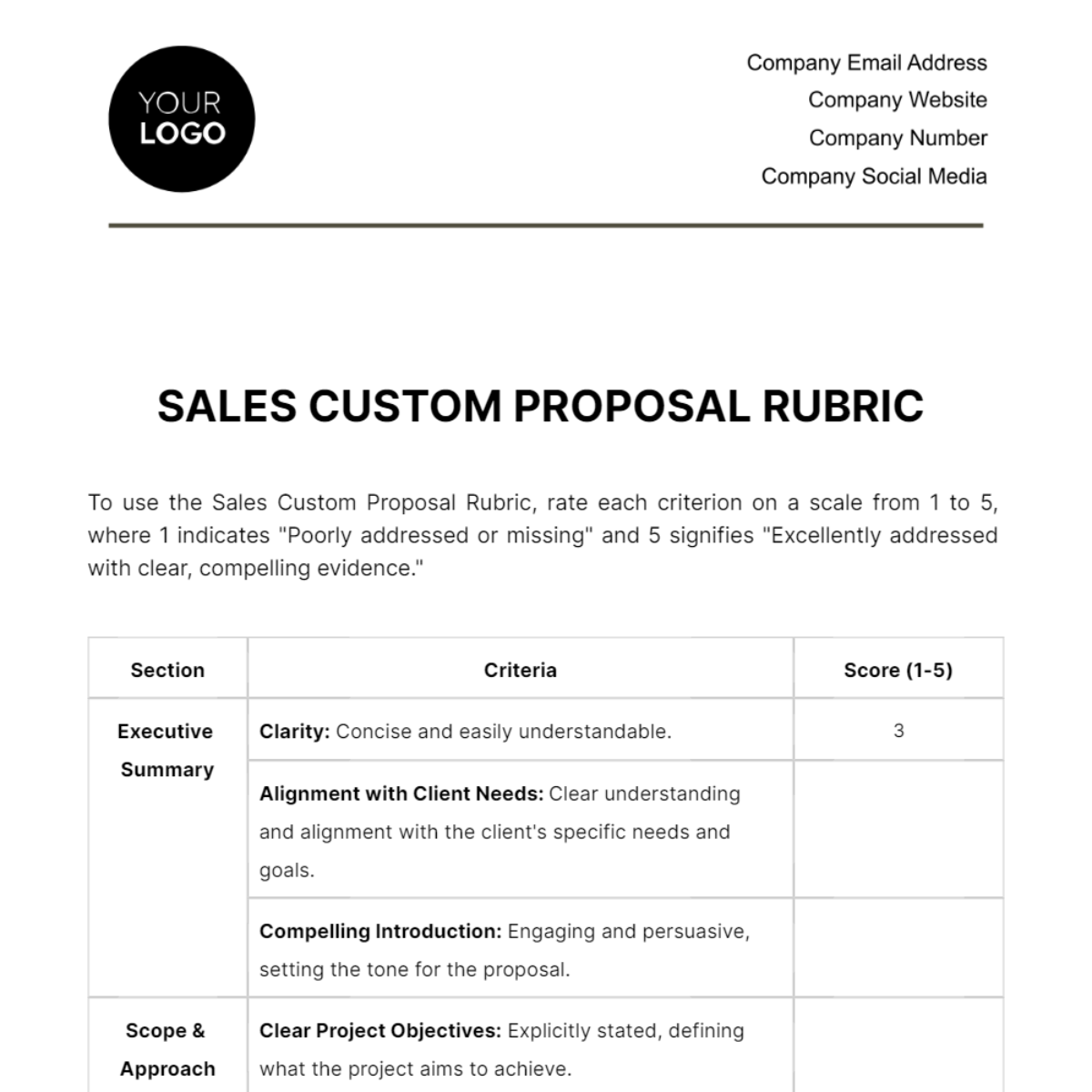Sales Proposal SWOT Analysis
Introduction
In an ever-changing business landscape marked by rapid technological advances, shifting consumer behavior, and global economic uncertainties, it is imperative for [Your Company Name] to consistently reassess and recalibrate its sales strategies to ensure sustainable growth and profitability. With this in mind, we present this SWOT Analysis, a comprehensive evaluation designed to scrutinize both the internal and external factors that have the potential to influence our sales performance for the year 2050 and beyond. This analysis is not just an academic exercise but a critical strategic tool intended to provide actionable insights into the Strengths, Weaknesses, Opportunities, and Threats that are pertinent to our proposed sales initiatives.
By offering a 360-degree view of our current positioning in relation to market dynamics, this document aims to serve as a foundational blueprint for informed decision-making. It is conceived to aid executives, stakeholders, and team members in gaining a nuanced understanding of the competitive advantages we possess, the challenges we need to overcome, and the opportunities we can capitalize upon. Ultimately, this SWOT Analysis is an investment in knowledge that will guide us in crafting robust, adaptive sales strategies, empowering [Your Company Name] to achieve its revenue goals and strategic objectives in the foreseeable future.
Strengths
A. Comprehensive Product Portfolio. [Your Company Name] has a wide-ranging product portfolio that caters to various market segments, providing a unique edge over competitors who specialize in narrower fields.
B. Established Brand Reputation. With years in the industry, [Your Company Name] has built a strong brand reputation that commands customer trust and loyalty.
C. Technological Infrastructure. The company has invested in cutting-edge technological solutions that enhance sales efficiency, customer data collection, and order fulfillment.
Strengths | Impact on Sales | Additional Details |
Comprehensive Portfolio | High | Our extensive product offerings cater to diverse consumer needs, allowing for cross-selling and upselling opportunities. |
Brand Reputation | Moderate | Years of quality service have resulted in high customer retention rates and word-of-mouth referrals, reinforcing our sales efforts. |
Technological Infrastructure | High | Investment in state-of-the-art CRM systems and analytics tools provides real-time insights, improving sales efficiency and forecasting accuracy. |
Skilled Sales Team | High | Our sales team has received comprehensive training in solution selling and customer relationship management, driving higher sales conversions. |
Customer Service Excellence | Moderate | Exceptional customer service not only retains existing customers but also attracts new ones through positive reviews and ratings. |
Geographic Reach | Moderate | Our wide geographic reach allows us to penetrate various markets effectively, thereby diversifying sales streams. |
Competitive Pricing | Moderate | Our competitive pricing strategy appeals to price-sensitive customers without sacrificing quality, contributing to higher sales volumes. |
Weaknesses
A. Supply Chain Vulnerabilities. Disruptions in the supply chain can adversely affect product availability, hampering sales targets.
B. Limited Global Presence. While strong in local and regional markets, [Your Company Name] has a limited global footprint, reducing its market reach.
C. Aging Product Line. Some products in the portfolio are becoming outdated, facing obsolescence risks.
Weaknesses | Impact on Sales | Additional Details |
Supply Chain Vulnerabilities | High | Dependence on a few suppliers and logistical bottlenecks create vulnerability to disruptions, affecting inventory and potentially causing stock-outs. |
Limited Global Presence | Moderate | Our sales are largely confined to domestic markets, limiting our ability to tap into growing international consumer bases. |
Aging Product Line | Moderate | A significant portion of our product line is aging and lacks the features of newer market entries, affecting consumer appeal and risking obsolescence. |
Inadequate Marketing | Moderate | Our current marketing strategies are not as effective in capturing new customer segments, affecting our market share and sales. |
High Overheads | Moderate | Elevated operational costs restrict our ability to price competitively, potentially making us less attractive to budget-conscious consumers. |
Lack of Diversification | Moderate | Our focus on a narrow product range or industry exposes us to risks in market fluctuations, potentially affecting sales and revenue. |
Seasonal Sales Dependency | Moderate | Our sales performance heavily depends on specific seasons or events, causing fluctuations and instability in revenue streams. |
Opportunities
A. E-commerce Expansion. Growing trends in online shopping present an opportunity to bolster e-commerce sales.
B. Emerging Markets. Entry into new, emerging markets can provide a significant boost to sales revenue.
C. Sustainable Products. An increasing demand for eco-friendly products opens a new market segment that can be capitalized on.
Weaknesses | Impact on Sales | Additional Details |
Supply Chain Vulnerabilities | High | Dependence on a few suppliers and logistical bottlenecks create vulnerability to disruptions, affecting inventory and potentially causing stock-outs. |
Limited Global Presence | Moderate | Our sales are largely confined to domestic markets, limiting our ability to tap into growing international consumer bases. |
Aging Product Line | Moderate | A significant portion of our product line is aging and lacks the features of newer market entries, affecting consumer appeal and risking obsolescence. |
Inadequate Marketing | Moderate | Our current marketing strategies are not as effective in capturing new customer segments, affecting our market share and sales. |
High Overheads | Moderate | Elevated operational costs restrict our ability to price competitively, potentially making us less attractive to budget-conscious consumers. |
Lack of Diversification | Moderate | Our focus on a narrow product range or industry exposes us to risks in market fluctuations, potentially affecting sales and revenue. |
Seasonal Sales Dependency | Moderate | Our sales performance heavily depends on specific seasons or events, causing fluctuations and instability in revenue streams. |
Threats
A. Market Saturation. Increasing competition and market saturation can lead to reduced market share.
B. Economic Downturn. A potential economic downturn could negatively affect consumer spending.
C. Regulatory Changes. Sudden changes in trade regulations can incur unforeseen costs and delays.
Threats | Impact on Sales | Additional Details |
Market Saturation | High | The industry is becoming increasingly saturated, with numerous competitors offering similar products, leading to a decline in our market share and putting downward pressure on prices. |
Economic Downturn | High | Recessions or economic downturns result in reduced consumer spending, impacting our sales volumes and potentially leading to lower revenue. |
Regulatory Changes | Moderate | Changes in trade regulations or the introduction of new tariffs and taxes could increase operational costs and cause delays, affecting sales and profitability. |
Technological Disruption | Moderate | Failure to adapt to emerging technologies could make our product line obsolete, losing market relevance and impacting sales. |
Geopolitical Instabilities | Moderate | Geopolitical tensions or instabilities in markets we operate in could disrupt supply chains, increase costs, and affect sales. |
Social and Cultural Trends | Moderate | Rapid shifts in consumer preferences or cultural trends could render our products less appealing, leading to a decrease in sales. |
Cybersecurity Risks | Moderate | Vulnerabilities in our online platforms could lead to data breaches, causing a loss of consumer trust and negatively affecting sales. |
Recommendations
In light of the comprehensive SWOT Analysis, we've identified key actionable recommendations that [Your Company Name] should consider to capitalize on opportunities and mitigate risks. These recommendations aim to address our company's weaknesses, leverage its strengths, and prepare for potential threats, thus setting the groundwork for a robust sales strategy for 2050 and beyond.
Invest in Supply Chain Resilience: To mitigate the weakness in supply chain vulnerabilities.
Expand Globally: Utilize digital marketing strategies to target potential international customers.
Update Product Line: Phase out outdated products and introduce newer models to maintain market relevance.
Adopt Sustainable Practices: Leverage the opportunity in the rising demand for eco-friendly products.
Plan for Regulatory Adaptation: Keep a buffer in budgets and timelines to adapt to sudden regulatory changes.
These recommendations serve as a strategic blueprint for [Your Company Name] to navigate the evolving business landscape effectively, thereby positioning itself for greater sales success.

